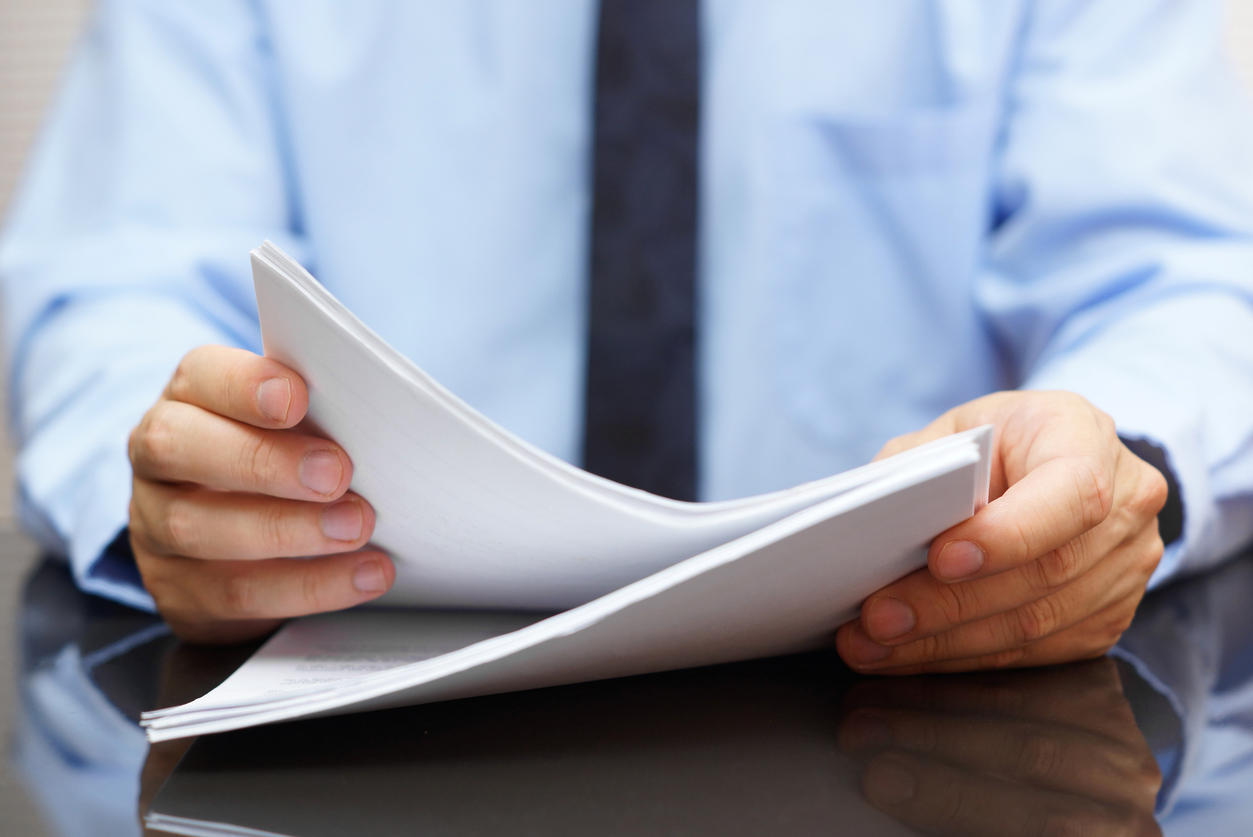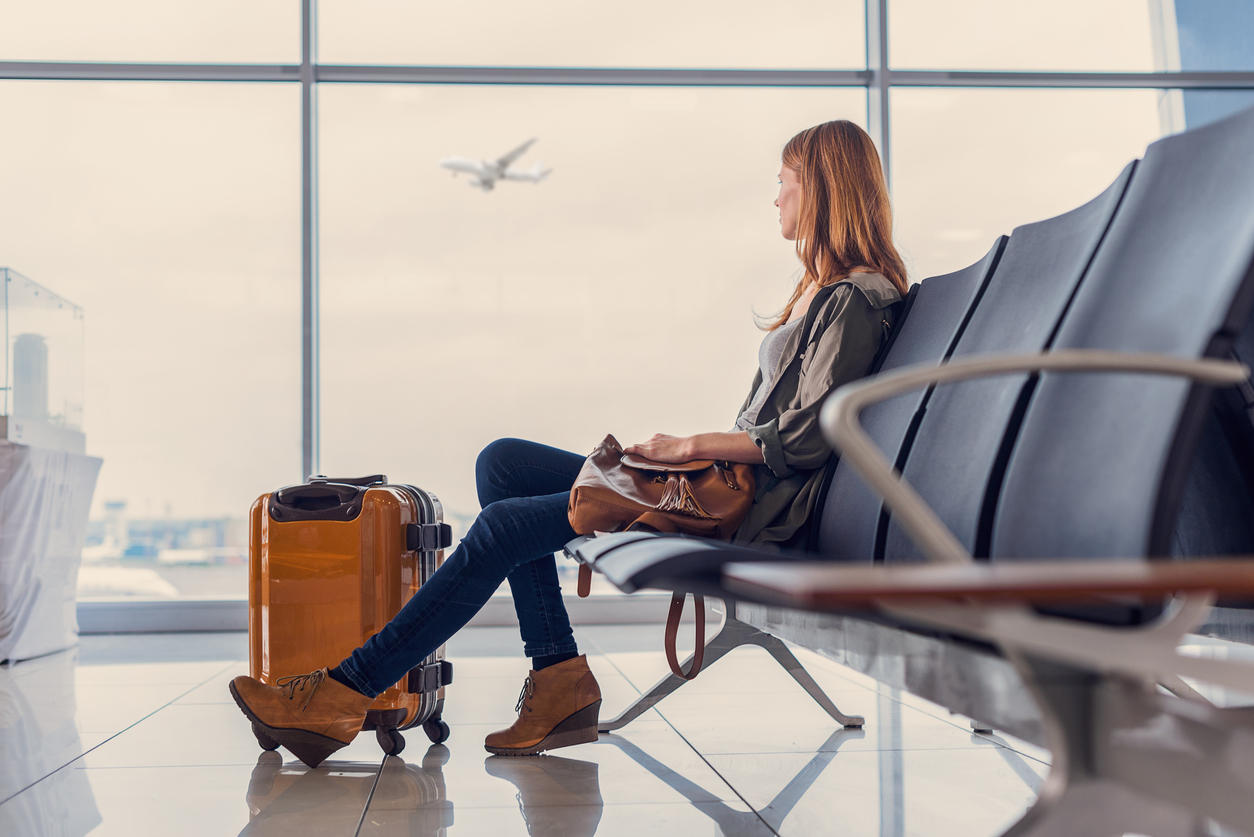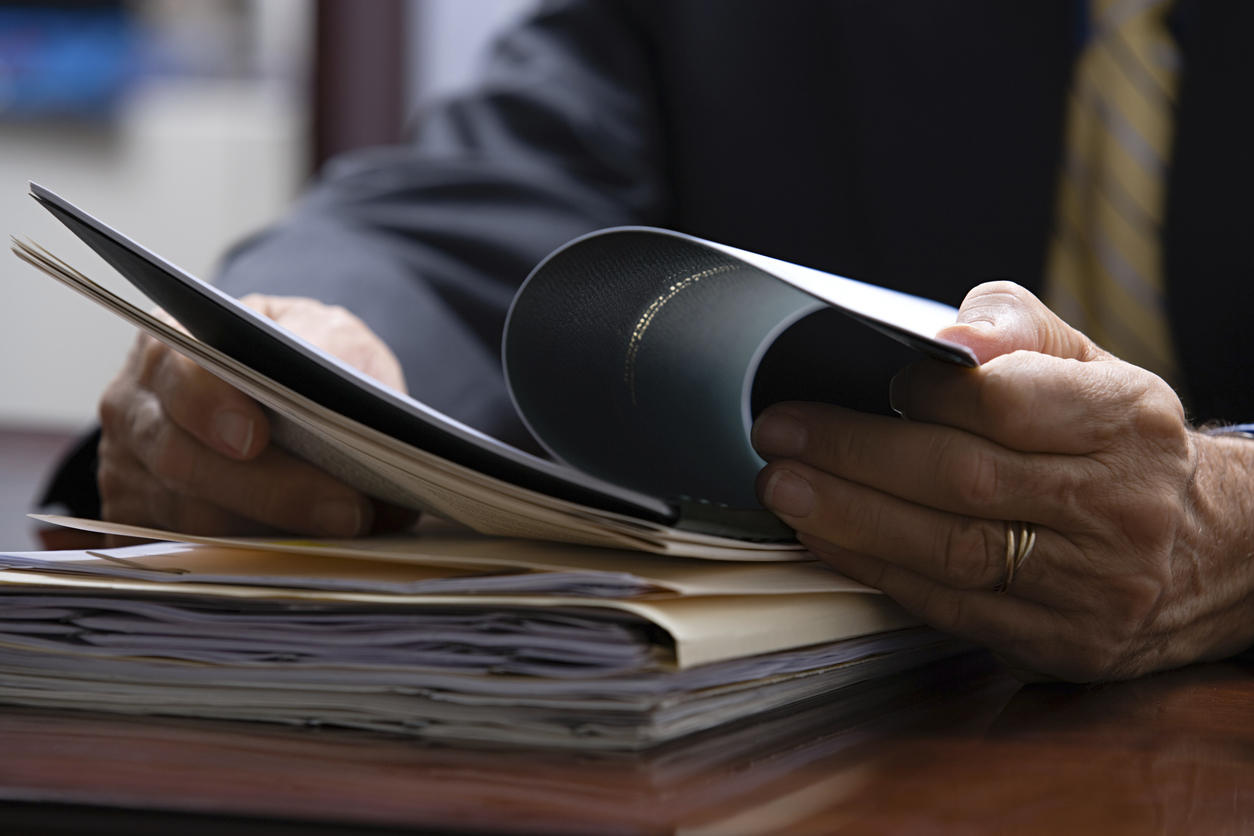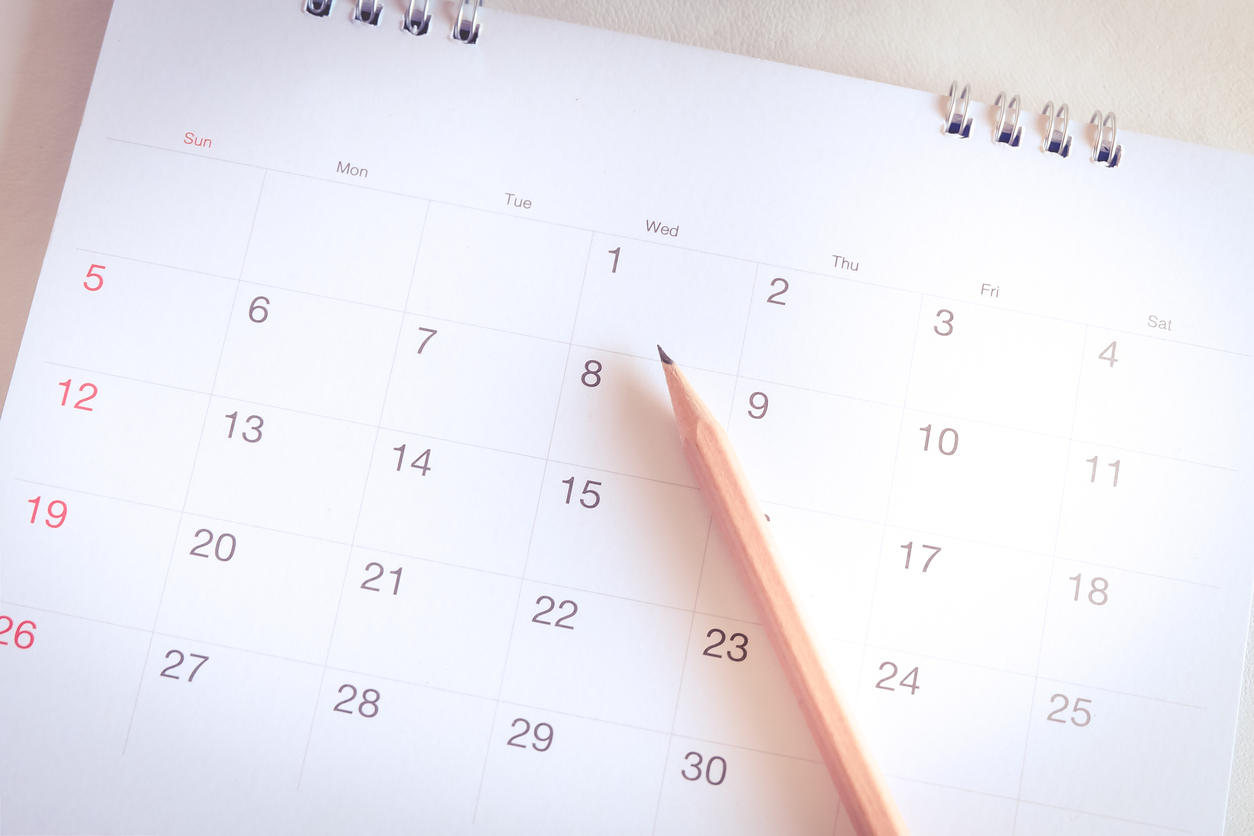Learn how to make the most of a once in a lifetime trips

Maybe you’ve got tickets to Coachella, or perhaps you’re planning to see the Monaco Grand Prix, or you’ve booked a Ducati Dream Weekend. You might be off to Comic Con San Diego or you’ve won the jackpot and managed to get in to see Hamilton on Broadway. Trips built around events can be incredible once-in-a-lifetime experiences. They also come with their own special considerations to make sure those experiences are every bit as incredible as you hoped.
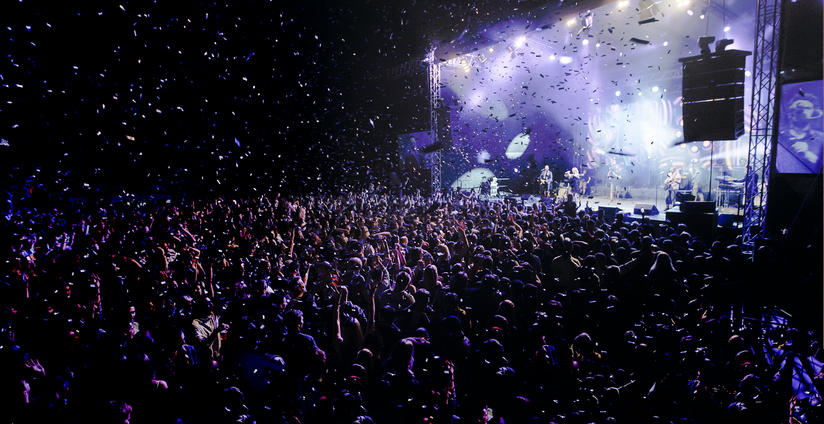
Splurge on a good ticket
If an event is the centrepiece of your trip, think carefully about the kinds of tickets you want to purchase. The chances are it’ll be a small proportion of your overall holiday expenses, and it would be so disappointing to travel over oceans and spend thousands of dollars to wind up in nosebleed seats. If you can afford it, spend the extra money to make sure you have the best seats you can get for the event.
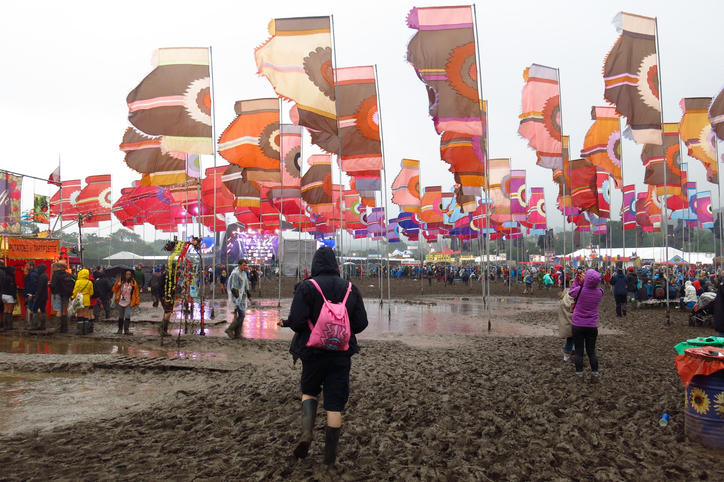
Pack smart
Think carefully about all the possibilities for your trip: maybe the summer rain will hit early, or maybe there’ll be a special event you’ll want to go to that requires cocktail attire. Brainstorm possibilities before you go and try to pack items that can double up. Don’t forget gumboots if you’re likely to be walking through muddy fields, and comfortable shoes if you’ll be waiting in long lines. Water bottles, rain ponchos and snacks can all be really overpriced when you get to an event venue, so if possible, purchase ahead of time and bring them with you.
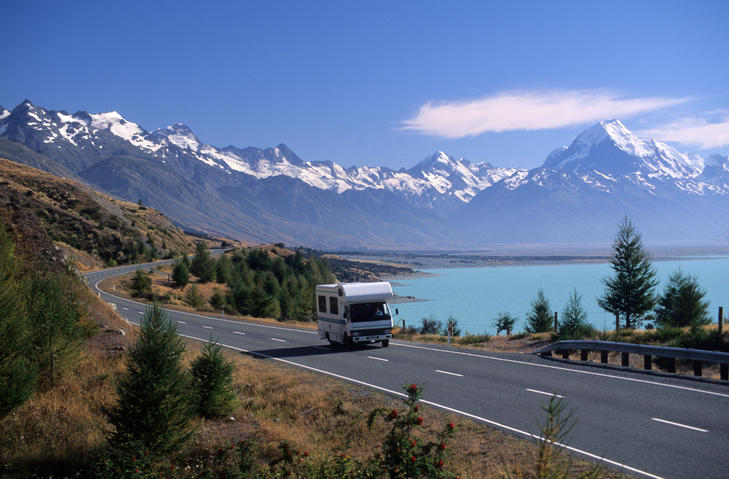
Consider renting a camper van
If you’re going to a festival or other event with camping, consider renting a van locally rather than packing camping gear for your trip. It will free up luggage space and be far less of a hassle. Plus, you won’t spend precious holiday time preparing your campsite and will mean you can stay warm and dry even in the rain. Make sure you have the right travel insurance, though: some policies don’t cover the excess for camper vans. Vans in local areas can book up very quickly ahead of big events, so book early!

Plan for jetlag
If you possibly can, arrive in the time zone of your special event with enough time to adjust well before it kicks off. The last thing you want is to be fading fast just as the headline act comes on, or to nod off before the encore. Time to acclimatise will help you be bright-eyed for your holiday highlight, so take that into account when you’re scheduling your trip.

Rest the day before
It’s tempting to try to make the most out of every single day of your trip, but sometimes going hard every day means that you do more, but enjoy it less. Being well-rested and energetic for the capstone of your trip will make sure you’re more likely to get the most out of it. Consider staying somewhere restful and simple, close to the venue, the day before your event begins.
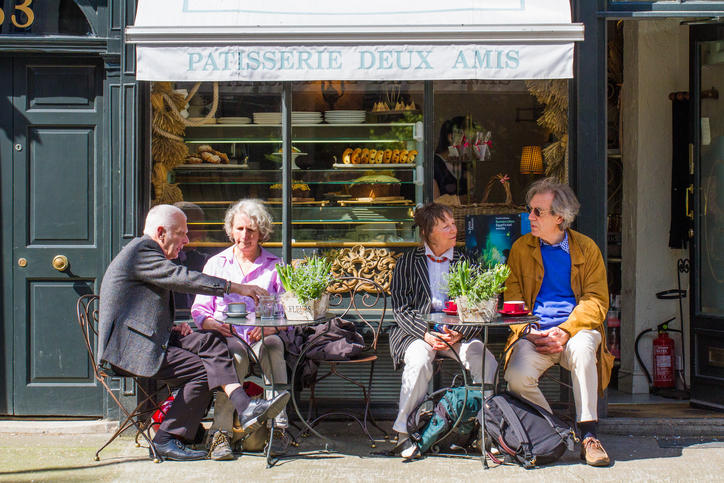
Make new friends
One of the best things about going to a special event is meeting people who share your passions. Consider checking out event pages on Facebook, or hashtags on Twitter, to find fellow travellers who will be good company at the event. But if you’re travelling alone, make sure you tell someone where you’re going to be and meet up with any new friends in a public place.

Budget for extras
The t-shirt, the souvenir program, the one-in-a-lifetime backstage photo: you never know what you might want to come home with to remember your incredible experience. Don’t forget to budget for these extras when you’re planning your trip: it’s not like you can go back later and buy another. Concert t-shirts from shows I’ve been to around the world are some of my favourite pieces of clothing.

Be strategic with photos
It’s tempting to take a thousand photos of the event to show exactly how close you were but resist the temptation to spend most of the time taking pictures. You didn’t travel all that way to watch the show from behind a screen! Take a few photos that show where you were, and take plenty of you and your travel companions, but nobody needs to see seventeen shaky YouTube videos of your favourite songs. Live in the moment and trust that the pros will get it on camera.

Make sure you’ve got the right travel insurance
Before you go, make sure you have the right international travel insurance lined up, so that if anything happens during your once-in-a-lifetime adventure, you’re prepared. Check your policy carefully before you purchase it to make sure it covers everything you need.
5 Ways Clothing can Make or Break your Trip
October 18, 2017

When we travel, we leave behind the comforts of home and most of our belongings. However, the one thing we do take with us is our clothing.
As part of the deal, your closet and drawers will be restricted to a suitcase, you usually (not always) lose access to a washer/dryer, you may face elements you’re not used to, and your usual attire may not be acceptable to local customs.
So researching and planning your travel wardrobe is essential to be prepared for your chosen destination and activities. The following are 5 ways clothing can make or break your trip.
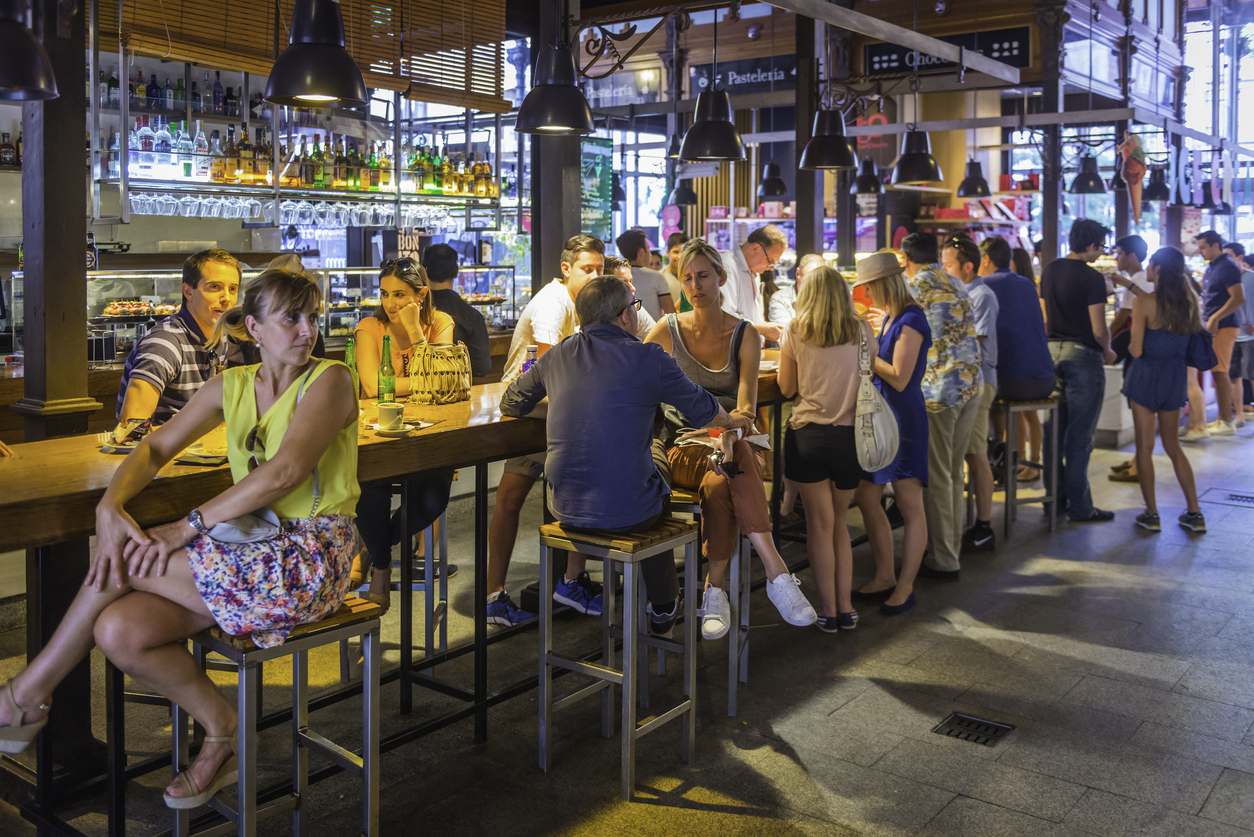
Packing the Right Amount of Clothing
Choosing the right amount of clothes for your trip is probably the most important aspect of packing. Clothing takes up most of the room in our luggage, and with airlines becoming stricter on weight allowances and/or charging higher baggage fees it’s vital that you choose your travel wardrobe wisely (and perhaps get creative when packing it!).
Pack too much clothing and you face the struggle of lugging around a heavy suitcase. Pack too little and you may have to track down a Laundromat or pay hotel laundry service fees that could possibly cost you more money than your clothes are worth.
The key is choosing versatile clothes that can be used for more than one situation or occasion. Don’t skimp on your undergarments as they will of course take the brunt of your daily activities. Hold back on bringing numerous heavy and bulky items such as jumpers and jeans. These can get several days of use without a wash. The bulky items you do choose, try to keep out of your suitcase by wearing them on the plane. Besides saving room in your luggage, it may come in handy to have warm clothes with you onboard where it can often be chilly once airborne.
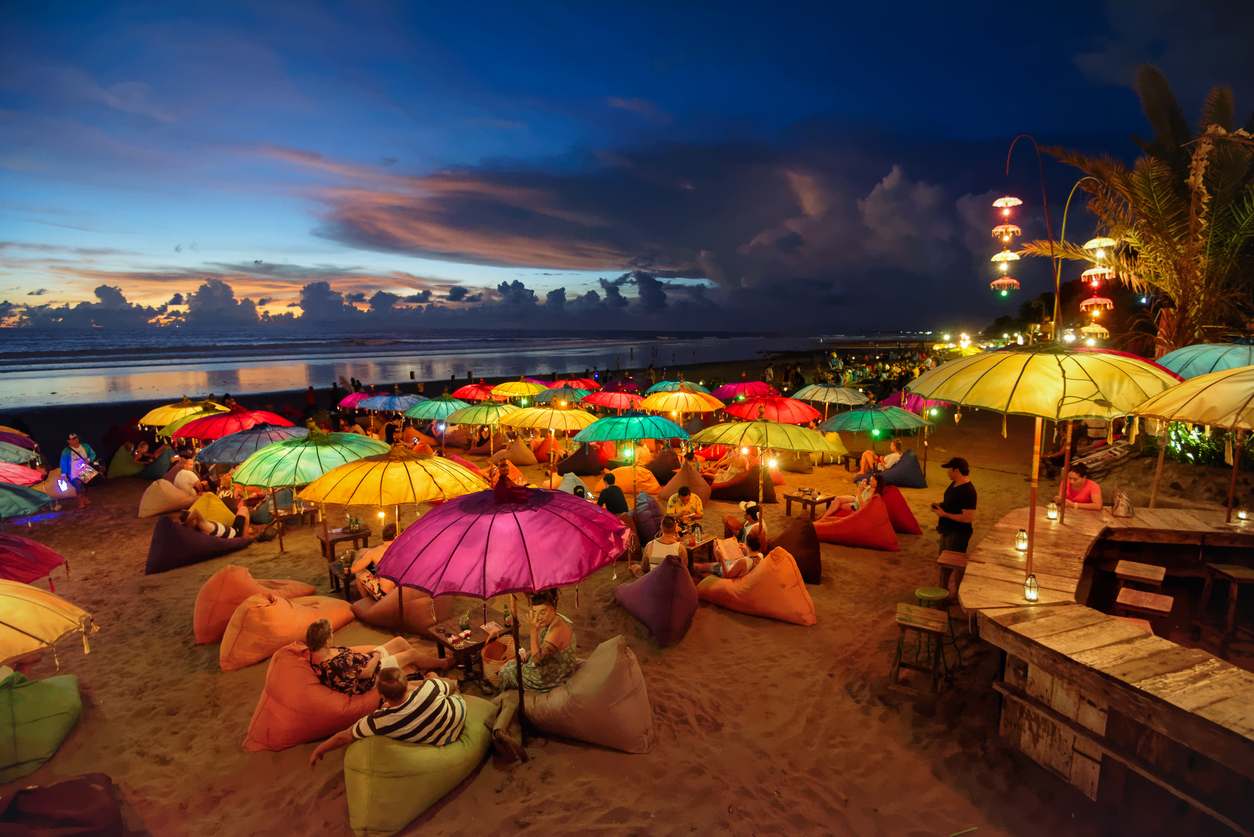
Choose Comfortable Low Maintenance Clothing
Travel can be stressful enough without having to be uncomfortable in your clothing. Just as comfort food eases our worries, so too does being draped in our favourite garments. You definitely should avoid tight clothing that can restrict motion as many modes of transport can have you placed in some awkward positions at times.
Bringing clothing that is easy to maintain is essential as you often don’t know what travel will have in store for you. The last thing you want to be doing on your holidays is ironing the day away or looking for the dry cleaners. Your expensive dress or suit may look great in Instagram photos but you’ll have to decide if “likes” are worth the hassle.
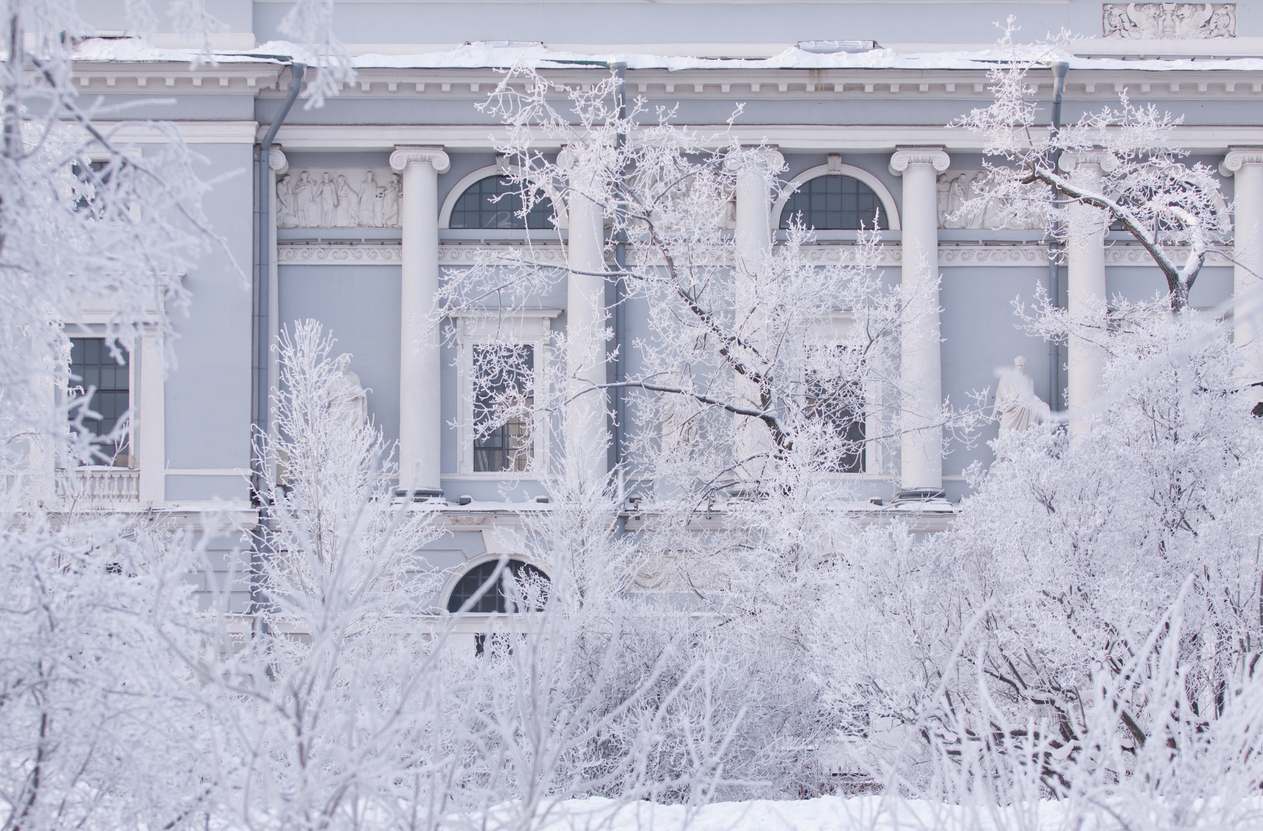
Dress for the Season and the Weather
Make sure to check the weather forecasts for where you’re headed so you know what kind of conditions you can expect. International travel involves taking the time to research what the conditions are like for the season you have chosen.
It goes without saying that if you’re headed for the snow, you will need extra accessories to keep your extremities warm. Winterizing your suitcase wardrobe takes a bit more planning but can be done quite easily. The key is not to have a bunch of bulky sweaters but rather to dress in layers. Layering lightweight long-sleeve shirts will be just as effective as something heavy and will be easier to pack.
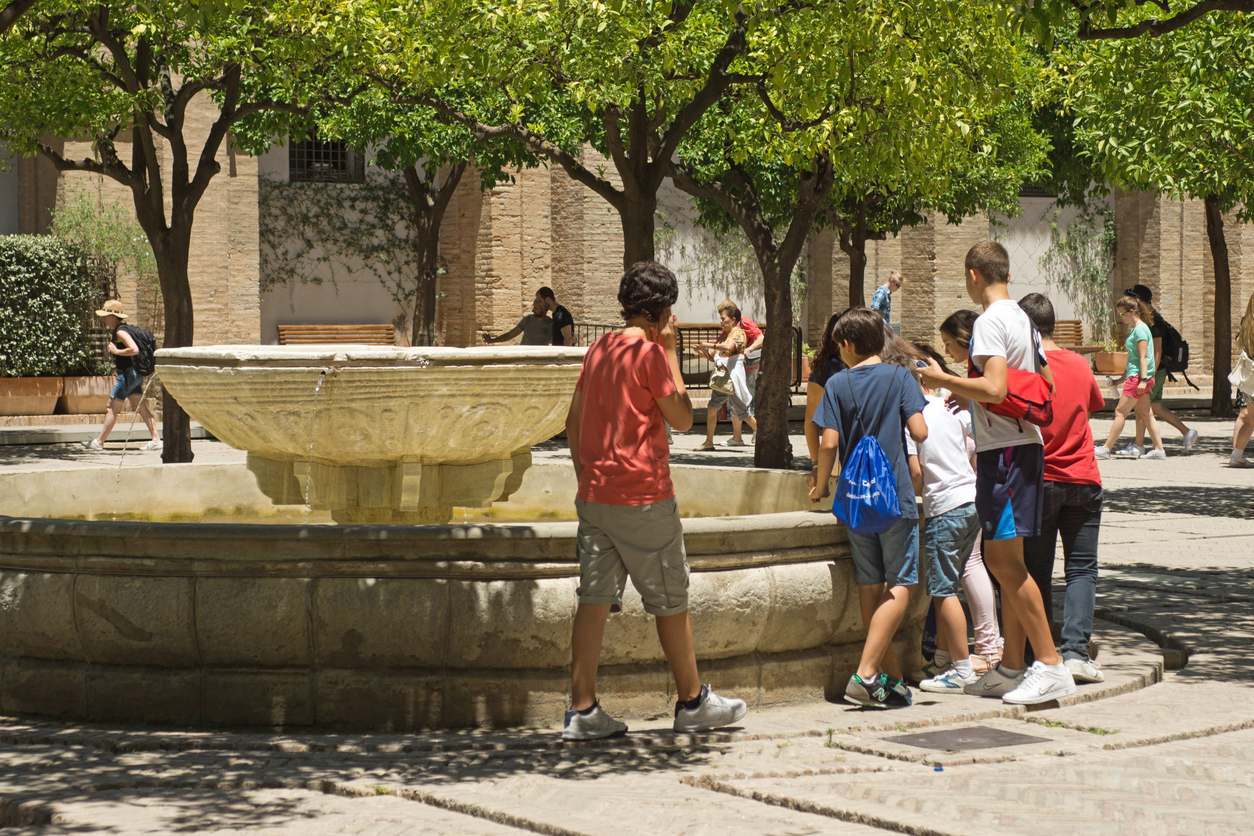
Pack the Right Shoes
Start on the right foot by making sure you have packed appropriate footwear for your itinerary. There’s nothing worse than not having the right treads as your feet take the brunt of your travels. You don’t want to be stuck with only sneakers if you’re headed to the beach, and you don’t want to be stuck with a suitcase full of thongs when a fancy night on the town is expected.
If you plan on heading on nature walks, it is vital to have heavy-duty waterproof hiking boots that will not only keep your feet safe from the elements but also from unexpected wildlife such as snakes. Try to wear your heaviest footwear on the plane to lighten your baggage load. You can always remove them in flight and switch to a pair of hotel slippers or comfortable socks.
Be sure to bring plastic bags for your shoes so you can pack them in your suitcase without getting dirt or sand throughout your clothes. Also, make sure to break in any new pairs of shoes before your trip to avoid blisters during your travels.

Choose Clothing that is Culturally Appropriate
Even more important than choosing your clothing based on your destination’s weather and your comfort is to make sure your look will be respectful to local customs. Foreign countries may not have the relaxed laws you may be used to when it comes to public dress.
International travel is not the time to make a stand for your personal freedom of style. You may not agree with laws such as women having to cover up or not being allowed to expose tattoos but these are minor inconveniences for being allowed to experience another land and its culture.
Travel is a time to open your own mind to new ideas, not a time to act as a missionary trying to change a destination. It is a destination’s uniqueness that draws us to travel in the first place.
Regardless of what clothing you ultimately choose to bring, make sure you consider travel insurance. This will cover you in the event your baggage is lost, stolen, or damaged. It will also come in handy should your bags be greatly delayed by an airline or transport company and you are forced to purchase new clothing to get you by.
Ultimate Guide to Saving Money on Your Disney Holiday
November 15, 2017

A visit to Disney World or Disneyland is a dream come true for many children and adults alike. It makes for a truly magical experience, and one which everyone will remember for the rest of their life.
However, that magic often comes at a hefty price. In addition to high park entrance fees, you have accommodation and transportation expenses to worry about.
Thankfully, there are many ways in which you can save on a Disney vacation, which may allow families on a strict budget to afford such a luxury, or allow travellers to extend their Disney experience. Here are some helpful tips on how you can save some cash on your next Disney holiday.

Travel During Low Season
Booking your Disney holiday during off-peak season not only allows you to avoid massive crowds but also saves you a lot of money. Although you won’t save on park passes, you will save on accommodation and maybe even flights.
Low season for parks in the US includes mid-January through mid-March, mid-April through mid-May, and mid-September through mid-November. These periods of time traditionally see lower attendance; however, watch out for the odd holiday, like Halloween, which sees crowds peak.

Stay Offsite
If you plan on renting a car, this will allow you to drive to the parks yourself, meaning you can stay at a hotel outside of the Disney Resort area.
This is far more economical, as Disney Resorts are often a lot more expensive than those in cities like Orlando or Anaheim, and you may find hotels with much larger rooms and less restrictive terms when it comes to guests allowed.
Some hotels may even be close enough to the parks to walk.

Check Disney Websites for Special Offers
Disney used to be very hushed when it came to publicising discounts, but this has somewhat changed. You can now find special offers listed on their websites and delivered to your inbox if you sign up for their mailing list, although they can still be tricky to find, so a bit of searching around may be required.
You’ll find seasonal discounts, multi-day/night room and ticket options, and percentage off specials. Note that specials are usually not offered during peak season and usually require a minimum number of days/nights, which may be more than you were willing to spend.
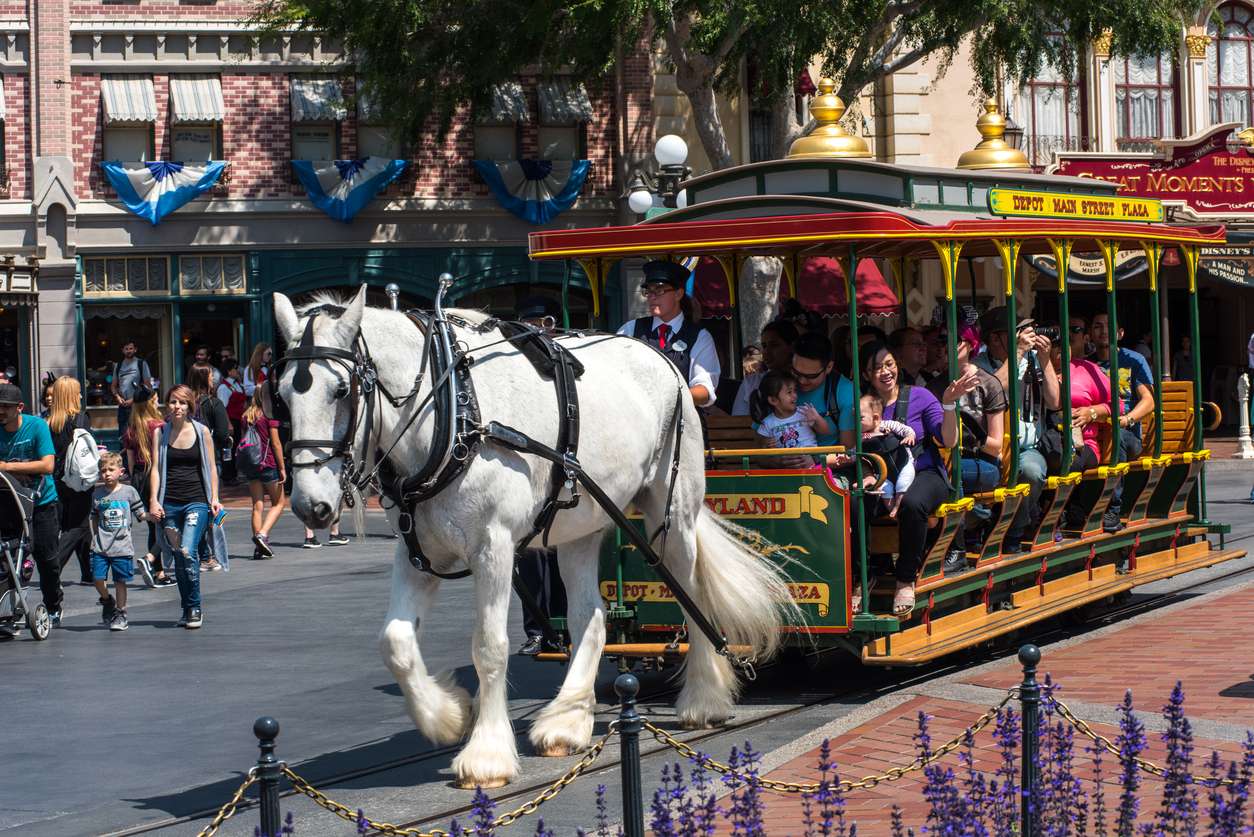
Ditch the Rental Car
While renting a car means you could save money on accommodation by staying off-site, compare the cost of a rental car against the free transport offered by staying at a Disney Resort.
Disney World offers much more in the way of complimentary transportation services than Disneyland. If you find yourself staying at a qualifying Walt Disney World Resort Hotel, then you can take advantage of Disney’s Magical Express, which will shuttle you to and from Orlando International Airport. This includes free luggage delivery as well as complimentary check-in services for partner airlines.
Guests of select Walt Disney World Resort hotels will enjoy complimentary transportation throughout Walt Disney World Resort, including transportation to and from Disney Theme Parks and Disney Water Parks.
Avoid the driving and parking hassles by making use of the complimentary Walt Disney World Resort transportation system. Air-conditioned buses, the Monorail, and boat rides are all offered to shuttle you around the resorts and parks.
Disneyland offers the Disneyland Resort Express, which can be taken from LAX airport just as you exit baggage claim, and the Anaheim Resort Transit Trolley will shuttle you around Disneyland itself and the surroundings. Both of these cost a fee but may be cheaper and less hassle than renting a car if you plan on just staying around the park for an extended time. Note that children under 11 are usually free to use the ART services with a paid adult.

Pay with Credit Cards
Using credit cards is a great idea if you’re responsible with using them and pay them off in full each month. You can offset Disney purchases with the points or rewards you will attain, which many credit cards offer.
Make sure to use cards with no foreign transaction fees when travelling internationally, and know that your credit card company usually offers better foreign exchange rates than swapping currency at the airport.
You may even be able to cash in already accumulated points to reduce the costs of your next Disney vacation.

Under 3 is Free!
Two-year-olds generally have it made, especially when visiting Disneyland or Disney World, as they get in free. In addition to free admission to the parks, they are not required to obtain Fastpasses, nor do they have to be included on a dining plan. They can simply share off your plate.
You will usually not be required to provide any proof of age for children under the age of 3, but you could bring along a birth certificate if you are worried. Should your child turn 3 during your Disney holiday, rest assured they will still be free so long as they were two on the first day you visited the parks.

Avoid Purchasing Souvenirs from the Resorts & Parks
Nearly all Disney toys and gifts available for purchase at Disneyland or Disney World itself will have you forking out a lot of your hard-earned cash. You can get creative and secretly purchase Disney merchandise beforehand via discount online sources or local low-priced department stores.
Try presenting your pre-purchased gifts to your children each day before you head out to the parks, which may hopefully eliminate the pressure from your children wanting to buy merchandise within the parks.

Check Up Mousesavers Online
Since 2001, MouseSavers have been providing Disney-related discounts, including deals on resort hotels, tickets, and vacation packages. You can sign up for their free newsletter, which sends discounts when they become available.
Remember to purchase comprehensive travel insurance before you take your trip – you don’t want to give the happiest place on earth a reason not to be!
Saving Money on Food Costs While Traveling
January 16, 2018
Food can be one of the greatest draw cards of travel but it can also be one of the largest expenses you will face on your next holiday. A single meal at a fancy restaurant can sometimes cost more than your nightly accommodation rate.
Should you find yourself traveling with children, your expenses will be even greater. Although food costs will of course be inevitable, there are easy ways to reduce your costs so as to cut down on your overall travel expenses. Follow these helpful tips to save money where your mouth is concerned.

Self-Catering Accommodation
One of the best ways to save money on food costs is to choose accommodation which offers kitchen facilities. Many apartment rentals and even hotels offer rooms which can have a kitchenette or full kitchen.
With the introduction of Airbnb, finding accommodation with kitchens has become all that easier of a task. Even hostels usually offer communal kitchens where you can cook your own meals.
By self catering, you not only save a lot of money by not eating out, but you also save a lot of time. You will often find yourself experiencing long wait times for your meals especially when dining at busy restaurants. Best of all is you never have to add a gratuity when cooking for yourself.

Visit the Local Grocery Store
When booking your accommodation, try to select an option which has close proximity to a grocery store or food market. This works extremely well when you find yourself having kitchen facilities as you can cook just about any meal you desire.
Even if you have a traditional hotel room with no way to cook, visiting the grocery store is a great way to stock up on snacks and beverages at a far less price than you would find at attractions or cafes. You will be able to find a wide variety of items that don’t require refrigeration such as fruits and vegetables or you may be able to make use of your hotel’s mini drinks fridge for small items.

Free Breakfast
Choose accommodation which offers free breakfast. This will not only get your day off to a great start but you can make this your largest meal of the day to get you through your travel adventures. You may even be able to grab a few items from a breakfast buffet for the road such as fruits or bread items.
Certain tiers of hotel loyalty programs entitle you to free breakfasts so it is worthwhile looking into. Of course a B&B is always a good option for free breakfast.

Lounges
Lounges are a great way to score some great free food. Not only do hotels offer quality lounges, but you will also find lounges with a variety of food options at the airport. By booking a hotel room with lounge access, you not only usually get a fancier room, but also can take advantage of the lounge’s several free meals and snacks throughout the day.
Airport lounges can be accessed through a membership program or by achieving certain status with an airline. They not only offer superior comfort while you await your flight, but also always have plenty of food and refreshments on hand.
Avoiding Restaurants
Restaurants may be a simple and stress free way to eat while traveling, but the stress may hit you later on when you receive your credit card statement as restaurants can get quite expensive. When you eat out, you not only pay a premium for you food, but many times you also have to pay service charges and gratuities.
These extra charges can sometimes be 30%+ more on top of what the cost of your food was. By cooking for yourself or visiting street vendors, you can greatly reduce your food costs while still enjoying the local cuisine.
Avoid Paying for Water
You will be surprised at how much water can set you back while traveling. A simple bottle of water purchased at an attraction can cost as much as a small meal. Avoid paying for water by packing a water bottle you can fill up at fountains or your hotel.
If you find yourself traveling internationally and are concerned about drinking tap water, inquire as to whether your hotel offers free bottled water. If not, it is a great idea to purchase a large case of bottled water from the local grocery store where you can get dozens of bottles for the same price you’d pay for a couple bottles at attractions.
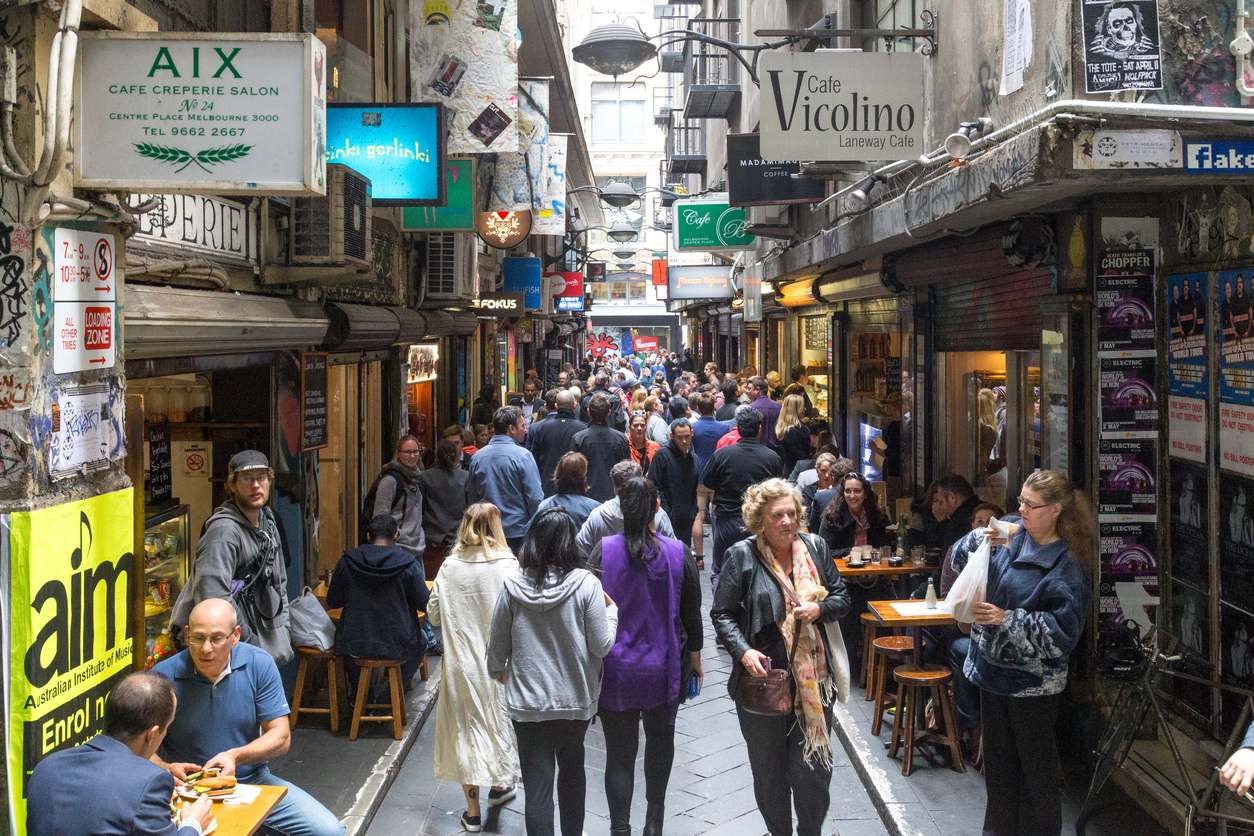
Ask the Locals
Chatting to locals is a great way to find out not only where economical places are to eat, but also which ones offer the best tasting meals. Usually the most expensive restaurants are places along famous tourist routes. Locals will know where to head to get away from the usual tourist hotspots which will save you money and long wait times.
Avoid Alcohol
Drinking alcohol is a sure fire way to rack up large expenses while eating out. A simple bottle of wine or a few cocktails can set you back more than the price of a quality meal. In addition you may find yourself not paying attention to the restaurant bill you are racking up.
Another factor to consider is that if you drink while on holidays, your travel insurance claim might be denied.
Travel insurance can prove to be very beneficial should you become ill while traveling abroad. Food preparation standards can vary from country to country and this may make you more susceptible to illnesses caused by food consumption.
Best Places to Visit on Valentine’s Day
February 08, 2018
Romance will soon be in the air once again, and what better way to celebrate the big day of love than by travelling somewhere special this year?
The world is filled with romantic destinations. Whether you are seeking something exotic, beautiful, or simply a change of scenery, you are assured to increase the feeling of love and excitement no matter where you decide to travel.
Here are some top destinations that are perfect for celebrating love with your partner, finding new love, or simply enjoying the big day on your own.

San Francisco, California
It has been called the Paris of the West, and for good reason. Start by taking a seaplane ride over the city to see just how lovely this city is. San Francisco is perfect for Valentine’s with no shortage of fancy hotels, restaurants, bakeries, and events.
During the day, you and your partner can opt for a tandem bike ride in Golden Gate Park or simply take a stroll across the iconic red bridge. Take a paddle boat upon the serene waters of Stow Lake to enjoy the small waterfall and maybe a kiss beneath the lovely historic double-arched stone bridge.
Add romance to the night by booking a catamaran sunset cruise or dinner dance cruise on the bay.
Hawaiian Islands
No matter what Hawaiian Island you choose, you are sure to set the stage for romance. Postcard-perfect beach settings, complete with swaying palm trees, are around every corner. Hawaii’s stunning resorts have long been a favourite for destination weddings, honeymoons, and, of course, celebrating Valentine’s Day.
Enjoy the dramatic and stunning scenery of Kauai and Molokai or the endless recreation and activities offered by Maui or Oahu. Hawaii can be as adventurous or relaxing as you want to make it.
Paris, France
It is hard to compete with the “City of Love” when it comes to choosing a great Valentine’s Day destination. Although the famous love locks may have been removed from the Pont des Arts and other local bridges, love continues to flourish in Paris.
As February is off-season for Paris, you and your partner can enjoy more privacy, far removed from the masses of tourists. You’ll also enjoy cheaper airfares.
There are more than enough restaurants offering mouth-watering French cuisine that is sure to warm you up from the cold, and if that doesn’t do it, the delicious hot chocolate you’ll find in Paris definitely will.
Bali, Indonesia
Bali has long been a favourite destination among Australians. Its lively nightlife is perfect for singles, while its endless luxury resort options are perfect for couples.
Enjoy 5-star luxury service at relatively low rates while enjoying beautiful weather and landscapes. Private romantic dinners prepared by your very own personal chef, luxury spa visits, and sailing into the sunset are just some of the romantic offerings available.
Watch for dolphins along one of Bali’s numerous beautiful beaches, swim beneath waterfalls, enjoy a cooking class together, or get more intimate via a couples massage.
Fiji
You don’t get more romantic than having your private bungalow directly over the sea, but that’s exactly what you can find in Fiji. Enjoy adults-only resorts or head to a deserted island for even more privacy.
Rent a small catamaran where you and your partner can set sail alone, stopping to have a private picnic on the beach of your choice. Enjoy horseback riding on the beach, maybe a Fijian Lovo feast, or shop for famous black pearls.
Lord Howe Island, Australia
One of the best Australian holidays. You don’t need to travel far to enjoy paradise; just head to Australia’s very own Lord Howe Island. Spoil yourselves in this island’s unspoiled natural beauty.
Here, you can cut out life’s distractions, allowing you to focus on the one you love. You are assured an intimate time as only 400 visitors are allowed on the island at any single time. With no mobile phone service and very limited Wi-Fi, you can truly detach from work and the stresses back home.
Just a short 2-hour flight from Sydney will award you with a truly romantic and memorable Valentine’s Day.
Remember to always ensure you are covered with comprehensive travel insurance. Don’t let the unforeseen circumstances ruin your romantic trip!
How to make sure you are eligible for an travel insurance claim?
March 21, 2018
The Financial Ombudsman Service reported that less than 10% of travel insurance claims are denied, and although this is quite low, you want to be assured you don’t fall into that small minority.
Travel insurance is both important and necessary when going overseas, and we strongly recommend to book travel insurance as soon as you book your holiday. The right policy can end up saving you a great deal of money when it comes to things like overseas medical treatment, cancelled trips, or lost belongings.
Fully understanding your travel insurance policy is essential for knowing whether or not you are entitled to make a claim. Here are some helpful tips you should follow to make sure your claim is eligible.
Understand Your Policy
Understanding your policy and reading the PDS will allow you to fully understand what you’re covered for during your travels. You need to make sure that all destinations you visit are covered under your policy, and that it includes all types of transportation you will use. For instance, if you will be taking a cruise you will need to make sure you have appropriate cruise travel insurance.
Note that your trip’s duration may be restricted when it comes to coverage and will depend on your age and destination. You will also need to make sure your insurer is aware of any pre-existing medical conditions which may impact your claim.
There are also restrictions regarding pregnancy and how late into your pregnancy you can travel with travel insurance coverage. Likewise, engaging in certain activities or sports may not be covered by your policy in any circumstance or may require additional coverage such as winter sports cover.
Be aware of your policy’s excess and coverage limits so you know exactly how much out of pocket expenses you will incur and how much will be covered by your insurer. Note that your excess amount is usually applied per claimed event and you will be unable to claim items that are less than your excess amount.
If you decide your chosen policy is not right for you, there is usually a full refund policy within 14 days of purchase so long as your trip has not commenced or you have not made a claim. This will allow you to select a more appropriate policy that will better suit your needs.
Pre-existing medical conditions
When it comes to pre-existing medical conditions, it is wise to be honest and fully disclose any conditions you may think could potentially impact any claims you may make. You generally must disclose any diagnosed medical condition which you have suffered from or received treatment for in the last five years.
Any pre-existing medical condition will generally be considered; however, acceptance of a pre-existing medical condition will depend on each traveller’s individual situation. Many conditions may even be covered free of charge.
However, in the unfortunate circumstance your condition does not qualify, you can still purchase travel insurance. Refusal of coverage for your condition will only void claims which arise from your refused pre-existing condition. You will still be covered for any medical claims that are unrelated to your refused pre-existing medical condition.
Reporting incidents
Whether your claim involves overseas medical treatment, lost baggage, or travel delays, you must notify your insurer as soon as possible if you plan on making a claim. Your travel insurance company’s 24/7 emergency assistance number is one of your greatest tools that comes with your insurance. They will be able to inform you on what you need to do in order to file a successful claim. This service can be utilised before, during, and after your trip.
Your travel insurance company will be able to assist you with pre-trip advice such as what vaccinations you may need, aid you in the event of lost luggage or belongings, coordinate medical evacuation, and help when it comes to overseas medical treatment.
You should contact your insurance company before agreeing to any medical treatment or tests when possible to make sure it will be covered. You must also report any incidents of loss or theft to the local police or appropriate authority within 24 hours. Be sure to keep any written policy statements that can be used as evidence.
Keep all documentation
If travelling with high value items, make sure those items are covered by your policy and be sure to have documentation such as receipts that show proof of ownership.
Keep all documents and receipts during your travels which may be required when making a claim. This may include things like airline statements in the events of misplaced baggage, police reports regarding accidents or theft, medical or doctor’s statements explaining treatment received, and receipts for additional expenses incurred due to travel disruption or delays.
Keep anything you think may support your claim. Too much evidence is better than not enough.
Be aware of deadlines
You must register any claim within 30 days after the completion of your travels along with providing all the requested documents needed to accept your claim. There may be additional documentation you need to submit that may also have deadlines so the earlier you submit your claim the better off you’ll be.
Note that reporting incidents to local authorities during your travel must also be done in a timely manner, usually within 24 hours.
To make sure you can claim back costs, allow your insurance company to coordinate necessary arrangements for you where they may also be able to front certain costs you may incur. If you find yourself facing delays in filing a claim, make your insurer aware of this.
Policy exclusions
You will find there are exclusions to your travel insurance policy, so make sure you are aware of them. Being intoxicated at any point during your travels may cause any claim you make to be denied, especially if you were intoxicated during an event for which you are filing a claim. You must also not knowingly place yourself in harm’s way whether that means entering a restricted area or travelling to a dangerous region.
Certain sports and activities such as sky diving and hang-gliding are usually not covered whereas winter sports will require purchasing an upgrade to have them included on your policy. If you plan to rent and ride a motorcycle during your travels you must have a valid motorcycle license and always wear a helmet to be covered by your policy.
It should go without saying, however, engaging in any illegal activity or using illegal drugs during your travels will no doubt have your claim denied. These are just some of the examples of common exclusions – for a full list you should check the PDS of your policy.
Follow the advice offered by the Smartraveller website which will advise you on the latest travel warnings and may help you provide evidence to your travel insurance company should you be advised not to travel to a destination after booking your holiday.
Conclusion
Choosing a travel insurance company which offers a simple claims process makes your life much easier in the event an unfortunate incident occurs during you travels. Be sure to have your policy number and details readily available during your travels, therefore your policy information can quickly be accessed in the event you need to make a claim. Should you have any questions, make use of your company’s 24/7 hotline that will be there to assist you along the way.
Tips and ways to stay safe while travelling
April 19, 2018
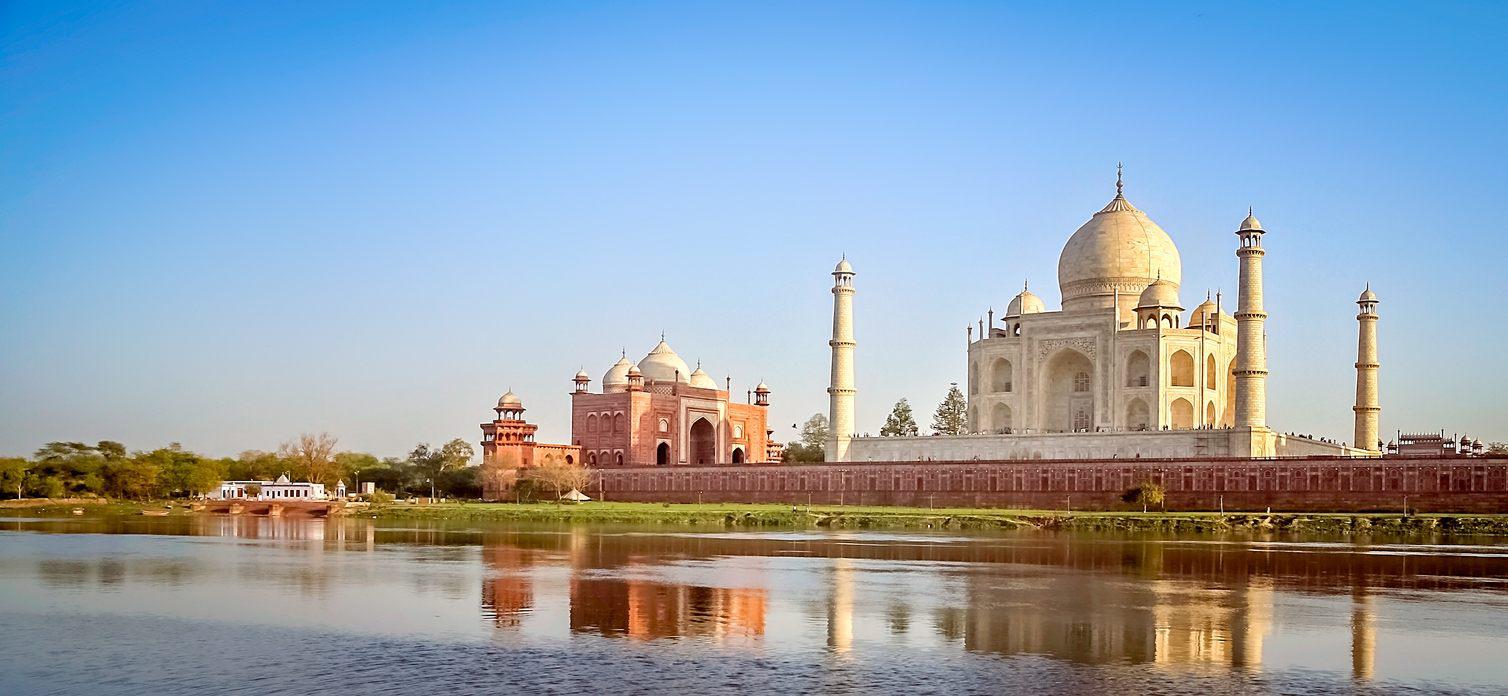
No matter where you decide to travel, safety should always be your number one priority. It’s a sad fact, but safety risks exist in every country, and accidents can happen to anyone. Whether you are planning to travel alone or with family or friends, it is important to take precautions to minimise your risk of potentially harmful situations.
Making yourself aware of travel dangers and being prepared begins from the moment you start planning your holiday. By implementing some simple safeguards and using common sense, you can make sure you or your loved ones don’t become a victim of travel threats. Here are some of the best ways to stay safe during your next holiday.
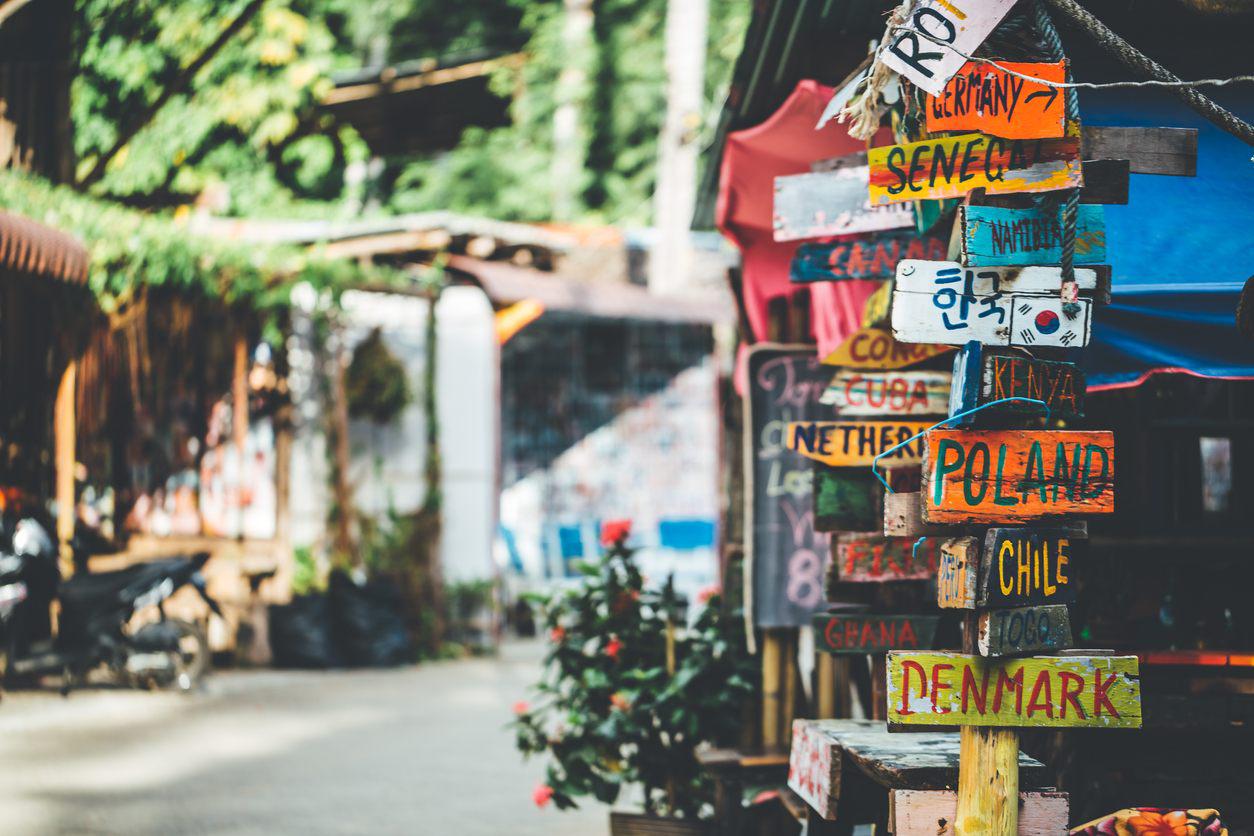
Choosing your destination
One of the first ways you can protect yourself is by choosing a travel destination which is safe(r). Although crime and dangers exist everywhere, many countries are far more prone to being unsafe. It is wise to stay on top of the latest travel advice and warnings issued by Australia’s Smartraveller website. Here you will find the latest information regarding crime, natural disasters, terrorism, and health concerns for the destination you are considering.
You should reconsider your need or desire to travel to any country which it is advised to avoid. Travelling to such destinations will not only put you in a potentially risky situation but may also disrupt your travel plans and affect your travel insurance coverage.
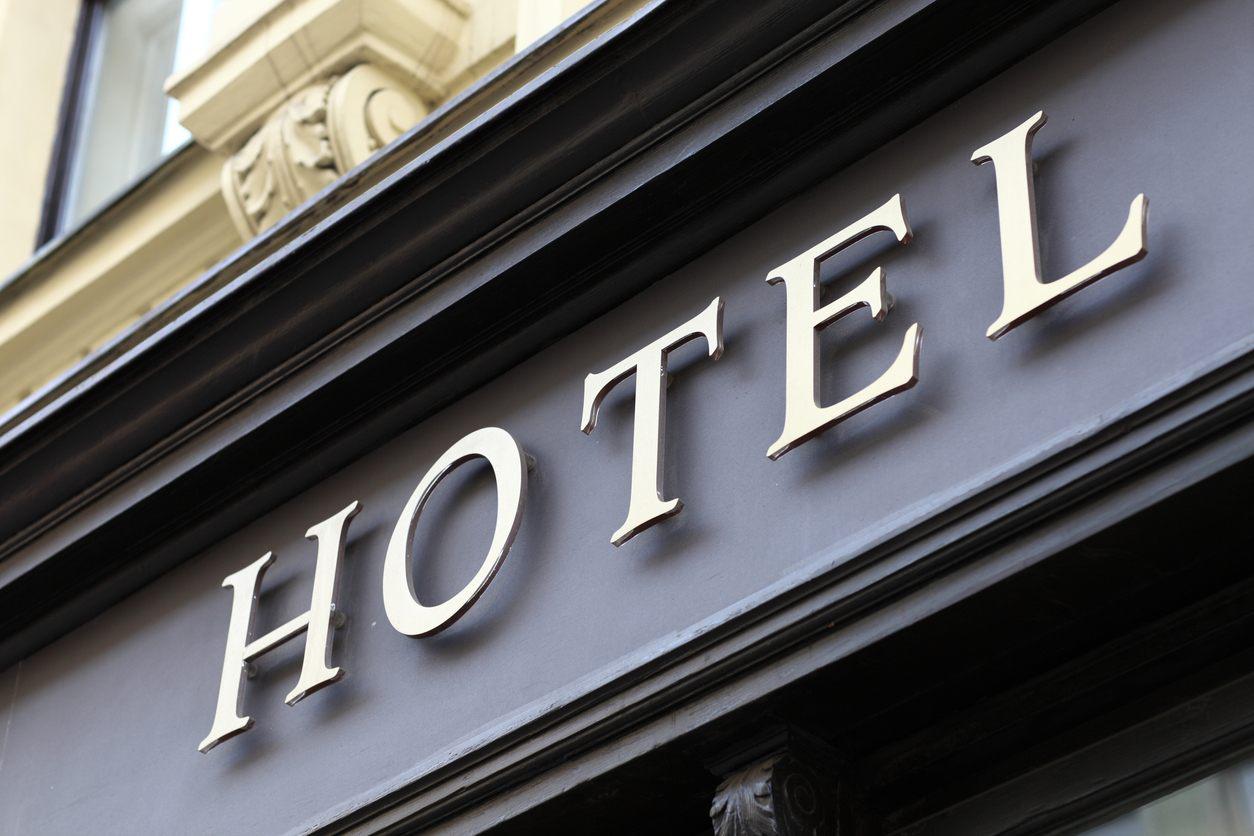
Selecting accommodation
It is important to select a hotel or other accommodation that is located in a safe area of town. Sticking with large name brand hotels is generally a good option and you can easily check reviews for nearly any establishment you choose.
It is a good idea to select a hotel which offers adequate security when it comes to your room, parking, and the hotel itself. Although cheaper accommodation options such as low-end hostels may be tempting, they may not be worth the potential dangers.
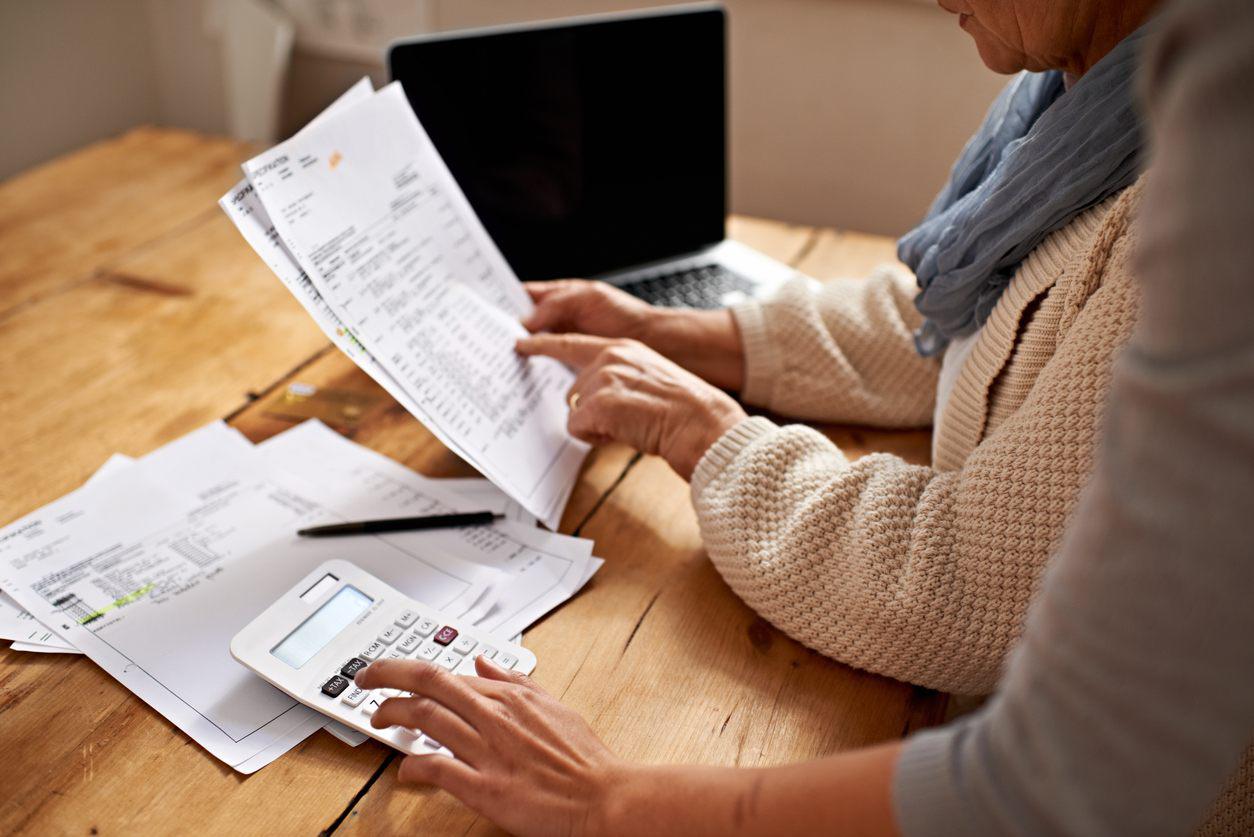
Make others aware of your travels
It is always a good idea to let family or friends know about your travel plans. Print or send them a copy of your itinerary and check in with them periodically during your travels. Include things like hotels you will be staying at along with phone numbers so they can contact you in case of emergencies. They may also be able to give you helpful advice during your travels that may assist you to avoid making unwise decisions.
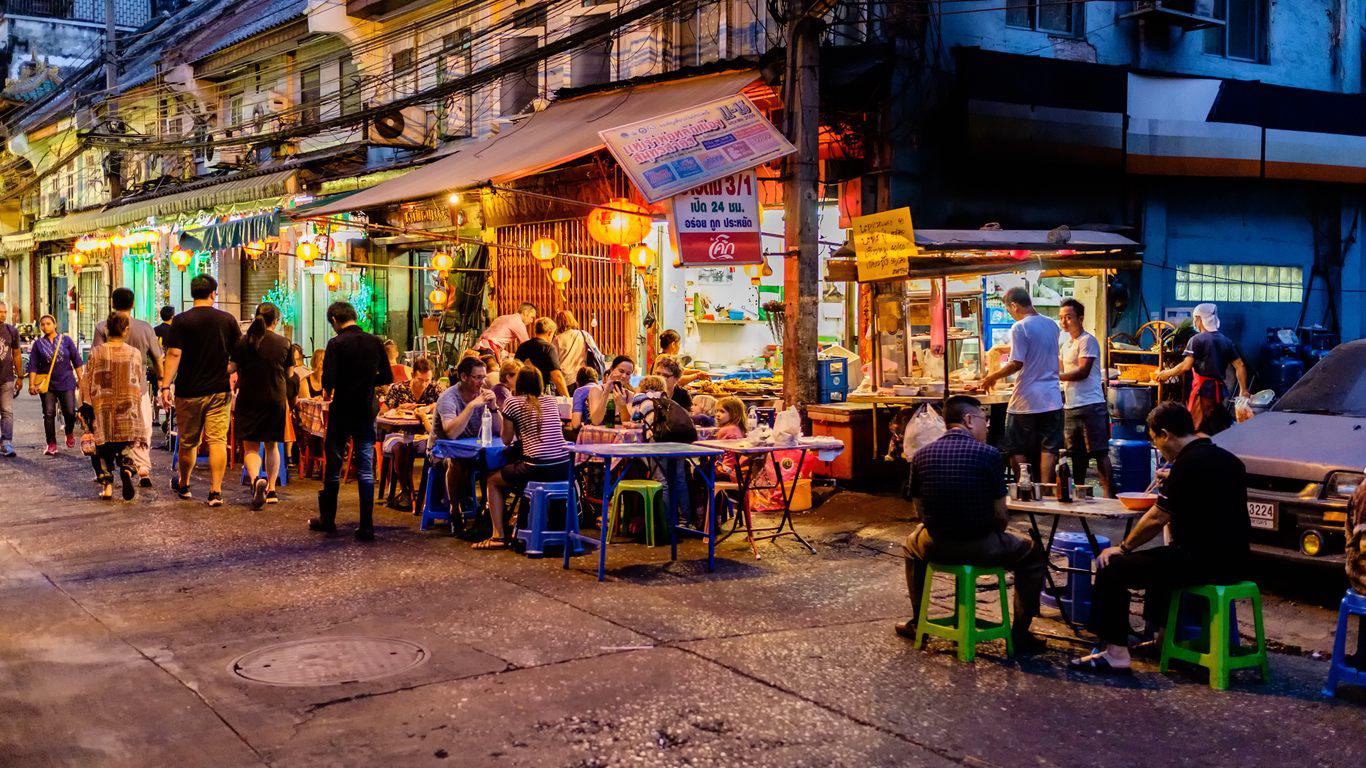
Food and drink
As much as you want to save money on food costs, it is important to be wise when it comes to what you put into your body while travelling. Foodborne illnesses affect nearly 50 million people each year with more than 250 food related diseases identified including salmonella and the norovirus.
Avoid drinking tap water in countries with low purification standards and be careful when it comes to consuming raw produce which cannot be peeled in these destinations. Street vendor food may not be adhere to safe food handling procedures and therefore should also be avoided. Be sure to also wash your hands before handling or consuming food.
Alcohol can affect your health and decision making so it is best avoided during your travels. Understand that consuming alcohol may also void your travel insurance policy.

Infectious diseases
It is vital that you receive all the required immunisation shots required for the destination you are travelling to. Mosquito-borne illness such as Yellow Fever or the Zika Virus can be quite serious so it is advised you carry appropriate insect repellent.
Influenza generally strikes during a destination’s winter months so extra precautions should be taken during this time. Avoid close confined contact with large numbers of people and restrict touching public surfaces. Remember to carry hand sanitiser and wash hands frequently.
Activities and attractions
Sometimes staying on the beaten path is a good idea. Well known tourist options are generally considered the safest bet. Avoid putting yourself in harm’s way by visiting dodgy neighbourhoods where crime may be more prevalent. You should also avoid engaging in high risk activities or extreme sports which may cause injuries and may not be covered under your travel insurance policy. Overseas medical expenses which are not covered due to reckless behaviour or uncovered activities can prove to be quite costly.
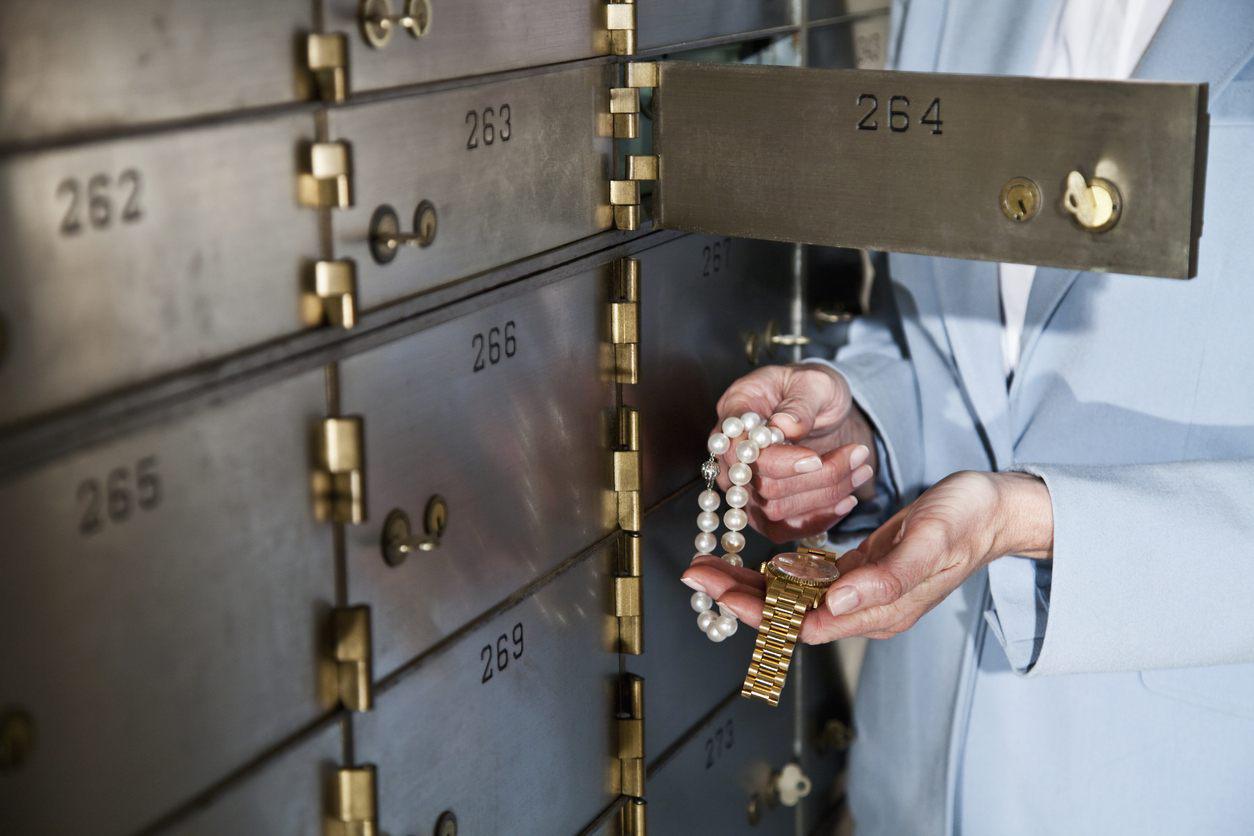
Carrying or wearing belongings
Leave your most expensive belongings such as jewellery and electronics at home while travelling. Limit the number of credit cards and cash you carry and lock things like your passport in your hotel safe. Avoid wearing expensive jewellery and don’t publicise the fact you are carry expensive objects like cameras or smartphones. Keep them concealed in a daypack that you secure at all times in addition to protecting your luggage. These tips will help you avoid theft and potentially harmful physical attacks.
Avoiding scams
With numerous scams present around the world, it is wise to make yourself aware of the ones most prevalent in the destination you are travelling to. Avoid using unregistered taxis or accepting offers from strangers. Scams can not only lead to theft but can also prove to be dangerous to your well being. Avoid offers too good to be true and trust your instincts when it comes to trusting people and their true identities. Never be afraid to ask for identification of people in uniform.
Protect yourself with travel insurance
Sometimes you can take all the necessary precautions to avoid travel dangers only to find yourself a victim anyway. It is therefore vital you protect yourself with a travel insurance policy which can protect you financially from things such as stolen belongings or overseas medical expenses.
Travel the Gold Coast – This year’s guide to the best attractions
7th January 2019
When it comes to finding a destination that offers something for any type of traveller, the Gold Coast has it all. Incessantly bathed in warm sunshine, Australia’s largest non-capital city has become a major holiday destination for both domestic and international travellers. The Gold Coast packs a lot of Australian spirit, showcasing some of the country’s finest beaches, the best luxury hotels and resorts, stunning natural attractions, and a lot of fun and adventure.
Indeed, the Gold Coast is a perfect place to relax or unleash your sense of adventure. But remember: don’t leave for your holidays without getting travel insurance first. You can click here to get a quote now.
Whether you’re in the mood for some glamorous shopping and dining out or simply want to unleash your inner child, the Gold Coast was designed for all-around pleasure. Make the most of your next Gold Coast holiday with this helpful guide to the best of what the Gold Coast has to offer. Start packing your bags and let the fun and games begin.
Theme Parks
The Gold Coast is Australia’s theme park capital, where you can challenge your nerves on thrilling rides, meet your favourite movie characters, get up close and personal with wildlife, and simply cool off from the summer heat. While Disneyland may be missing Down Under, there is plenty of fun and excitement to be had in these incredible theme parks.&
Dreamworld: Dreamworld is Australia’s largest theme park, offering themed lands and over 40 rides and attractions. Strap yourself in for a thrill ride on roller coasters such as the BuzzSaw or feed a tiger on Tiger Island. Your favourite animated characters come to life with the DreamWorks Experience, and you can celebrate Aboriginal and Torres Strait Islander culture along with Australian wildlife at Dreamworld Corroboree.
Warner Bros. Movie World: A theme park where you can transport yourself into your favourite movies and walk alongside famous movie characters, Movie World is filled with some of Australia’s favourite themed rides and attractions. Ride the DC Rivals Hypercoaster, the tallest, longest, and fastest in the Southern Hemisphere or settle for the more family-friendly Road Runner Roller Coaster. Meet Superman, Batman, and even Marilyn Monroe as you make your way through the Streets Star Parade and dance with Bugs Bunny at the Looney Tunes Dance Party.
SeaWorld: A theme park committed to marine research and rescue as well as offering exciting rides and attractions, SeaWorld offers fun for the whole family. Chill with the penguins and polar bears, or suit up and swim with dolphins. Take in engaging shows, including marine life presentations as well as an extreme jet ski stunt show. The SeaWorld Monorail System makes it easy to navigate the park as you seek out adventure in Castaway Bay and search for sharks in the Shark Bay Lagoon. You can also take advantage of the SeaWorld Resort, Australia’s only theme park resort, which will allow you the opportunity to play and stay.
Wet N Wild Water World: Dive into Australia’s biggest water park all year round with refreshing water rides in the summer and heated pools and slides during the winter months. Brave the 50 km/h Kamikaze water slide or be left in the dark during a trip down the spiral of darkness known as the Blackhole. Relax as you float along the lazy river of Calypso Beach or simply soak in the giant hot tubs of Whirlpool Springs.
National parks
The Gold Coast isn’t all about the man-made attractions and high-rises; it also provides access to some of Australia’s most beautiful national parks. Known as the green behind the gold, the Gold Coast hinterland contains numerous world heritage-listed sites that are home to a wide range of rare plants and animals that call the Gondwana Rainforests home. Here are just some of the must-see national parks around the Gold Coast.
Tamborine National Park: Make your way through the park’s rainforest as you encounter gorges, cliffs, and waterfalls. Seek out wildlife such as platypuses and lyrebirds along hiking trails in sections such as Palm Grove or Witches Falls. Don’t miss the 40m high Tamborine Rainforest Skywalk as well as the fascinating Tamborine Mountain glow worm tours located at Cedar Creek Estate.
Springbrook National Park: Explore the lush forests of Springbrook, which make up part of the UNESCO World Heritage-listed Gondwana Rainforests of Australia. Highlights include the Natural Bridge waterfall over Cave Creek, glow worm caves, and the chance to camp and spot nocturnal wildlife such as sugar gliders and possums. During the day, one can spot koalas near Wunburra Lookout as well as numerous bird species, including a wide variety of parrots. You’ll find plenty of waterfalls, picnic spots, lookouts, and trails to keep you busy for the day or several days.
Lamington National Park: Also part of the Gondwana Rainforests of Australia World Heritage Area, Lamington N.P. is packed with hiking trails and waterfalls. Get a bird’s eye view of the rainforest as you make your way through the canopy along the suspension bridges of O’Reilly’s Tree Top Walk. You’ll find over 160km of trails within the park, ranging from the easy-to-manage paved Centenary Trail to strenuous steep climbs. As far as accommodation goes, you’ll find everything from lavish rainforest retreats to basic camping in the Green Mountains.
Beaches
The Gold Coast’s nearly 60km of shoreline is home to some of Australia’s best beaches. From family-friendly beaches to some of the area’s finest surfing, the pristine sands of the Gold Coast are what made it famous. The following are just some of the incredible beaches the area has to offer.
Surfers Paradise: While it may not be aptly named, since there are many better surfing beaches to be found along the Gold Coast, Surfers Paradise is one of the most popular due to its convenience. The beach is just a short walk to many of the area’s best restaurants, shopping, and high-rise hotels. Here, you will find the Gold Coast’s nightlife and entertainment hub, which is geared toward a younger crowd. It is for this reason that it has become one of Australia’s most popular destinations for schoolies. The availability of self-catering apartments makes it a great destination for families as well, and the beachside markets offer fun for all ages.
Burleigh Heads: A popular surfing beach due to its famous surf breaks, Burleigh Heads often plays host to the Quicksilver Pro surfing contest. Burleigh Heads offers an escape from the large tourist crowds of Surfers Paradise but can still get a bit busy at times. The sheltered nature of the beach makes it perfect for swimmers, while Burleigh Head National Park offers a relaxing natural headland for hiking and whale watching.
Palm Beach: Palm Beach is the perfect spot for families due to it being one of Queensland’s cleanest beaches, along with its offering of numerous picnic areas and clean facilities. The beach offers a more laid-back vibe that is void of the high rises you’ll see elsewhere along the Gold Coast. Instead, Palm Beach presents iconic Gold Coast beach shacks with the addition of modern cafés, bars, and restaurants. Enjoy beautiful walks that are dog-friendly and safe swimming conditions for children around Tallebudgera Creek.
Coolangatta: Coolangatta offers pristine north-facing beaches that offer clear, sheltered waters that are perfect for swimming, fishing, and diving. Enjoy beachside parks and walking trails where you may be able to spot whales or dolphins, especially around Snapper Rocks. Whale-watching tours are offered from May to October. Surfers will want to check out the nearby Duranbah and Kirra beaches, while swimmers will want to stick to Greenmount Beach and Rainbow Bay.
Shopping and entertainment
The Gold Coast is home to some of Australia’s largest malls, where you’ll find countless local and international brand names. Be sure to pack an extra empty suitcase just in case you can’t contain yourself. In addition to great shopping, Gold Coast malls are packed with entertainment, great food, and recently renovated outdoor settings perfect for relaxing. Here are some of the shopping locales that are not to be missed.
Pacific Fair Shopping Centre: More like a luxury resort than a simple shopping centre, Pacific Fair is home to the world’s leading brand names. Located in Broadbeach Waters, the shopping centre has gone through a major redevelopment in the past few years, making it one of the Gold Coast’s premier shopping destinations. Enjoy a free shuttle service that operates daily between Main Beach and Burleigh Heads, as well as a first-class visitor lounge. Late night dining is available in the many fine restaurants located in The Resort, The Patio, and The Boulevard.
Harbour Town Outlet Shopping Centre: You’re sure to grab a bargain at what is said to be Australia’s largest outlet shopping centre. Harbour Town Outlet Shopping Centre is home to iconic Australian brands such as UGG as well as international brands such as Victoria’s Secret and Nike. Enjoy convenient access just 15 minutes north of Surfers Paradise. The centre’s new outdoor dining precinct is set to open in summer 2018, which will make it even more appealing.
Cavill Avenue Pedestrian Mall: The centre of the Gold Coast’s shopping and entertainment district, Cavill Avenue and its pedestrian-friendly mall offers just about anything you may be looking for. You will find a wide variety of restaurants, pubs, nightclubs, shops, and street entertainers. You will often have to share the lively beachside atmosphere with quite a number of tourists, but that only adds to the experience. Enjoy popular attractions such as Ripley’s Believe It or Not and the Wax Museum.
Food and drink
The Gold Coast offers a sophisticated dining scene that will leave food lovers scrambling to try all the delicious flavours available. Choose from simple beachside fish and chips shops all the way up to Michelin-star quality restaurants. You definitely won’t be starving to finding a great meal. Let us look at just some of what is in store for your taste buds.
Restaurants: In addition to serving incredible food, nearly all restaurants in the Gold Coast offer stunning views. Many provide alfresco dining to take in breathtaking sunsets, and you can find eateries that cater to all budgets. Enjoy an incredible traditional high tea at the Palazzo Versace and grab some of the area’s freshest seafood at The Fish House in Burleigh Heads.
Create your own dining bucket list and seek out dishes like deep-fried coconut prawns, sand crab lasagne, banana jaffles, cruffins, Patagonian toothfish, and seafood pizza. From breakfast to dinner and snacking in between, the Gold Coast will definitely not disappoint your stomach. And with numerous beaches and outdoor recreation at your disposal, you can easily work off any guilt you may have from overeating.
Breweries: The craft beer market has exploded onto the Gold Coast scene, with a brewing company to be found on nearly every corner. Head to Burleigh Heads to check out Black Hops’ famous Eggnog Stout or check out what legendary pro surfer Mick Fanning and his mates are brewing up at the Balter Brewing Company. Support new breweries like Miami’s Lost Palms Brewing Company with their Kombucha blends and IPAs, or simply stick with an old Gold Coast favourite like Fortitude Brewing Co. by grabbing a tasting paddle of liquid gold brewed on Tamborine Mountain.
Travel Southeast Asia: The Essential Guide
29th January, 2019
Southeast Asia offers everything from vibrant modern cities to small traditional villages. It is a place to experience new things and activate your senses. Taste exotic cuisine, travel on tuk tuks and long-tail boats, witness rare and critically endangered wildlife, and open your eyes to many different cultures and religions.
Most of Southeast Asia makes for unforgettable holidays that are both safe and friendly. However, just as you’ll find anywhere in the world, there are regions that should be avoided due to conflict or other dangerous situations.
Whether you plan on hopping from one country to another by air or booking a Southeast Asia cruise, it always pays to make sure your travel insurance covers the regions you will be visiting. Places like East Timor and other risky or unstable regions may not be covered by your policy.
Whether your ideal holiday consists of relaxing on tropical beaches, visiting temples, or trekking through the jungle, travelling Southeast Asia offers a wide range of incredible experiences. The key is to not overload your itinerary with too many stops and instead try to take the time to fully immerse yourself in the culture and landscapes of a selected few destinations. Southeast Asia is definitely not a region you can tackle in one trip.
Planning several separate Southeast Asia getaways may be a better option, and you may want to look into annual multi-trip travel insurance which can save you money if you plan on taking multiple holidays in a single year.
The following is a comprehensive guide to Southeast Asia travel. Find out everything you need to know for visiting this incredible region along with main highlights the region has to offer.
Entry Requirements
Many Southeast Asian countries allow Australian tourists to visit without having to obtain a visa for stays of less than 30 days. However, it pays to always check the visa requirements of each destination you plan on visiting as requirements often change.
Currently, countries such as Thailand and Indonesia do not require you to obtain a visa for tourism stays of less than 30 days. Singapore allows you up to a 90 day stay for tourism purposes. Other countries within Southeast Asia such as Cambodia do require you to obtain a visa which you can apply for online via the Cambodian Ministry of Foreign Affairs and International Cooperation.
It is important to ensure your passport is valid for at least six months from the date you intend to return to Australia and it is always a good idea to carry a recent passport photo in case you need a replacement passport while overseas.
If you plan on working or studying in a Southeast Asian country, note that you will most likely need to obtain a visa which allows you to undertake these activities. Note you may have to register with the local government or police if you plan on staying at a private residence as opposed to a hotel.
Never overstay your visa or travel allowance as this can lead to prosecution, fines, deportation, and possibly being banned from future visits.
Safety and Security
It pays to always check the up to date travel advice offered by the Smartraveller website. This site will advise you as to what degree of caution you should take when visiting various countries within Southeast Asia.
Civil unrest, political tension, and terrorism may be a greater threat when visiting certain Southeast Asia countries. Avoid protests, demonstrations, and large gatherings which can be a target for violence. It is also a good idea to be aware of dangerous border crossings when travelling by land.
Remain alert at all times and avoid walking the streets at night. Theft is common, so it is a good idea to secure valuables you carry with you or keep them locked in your hotel room.
Consuming alcohol is not recommended as drink spiking is common as well as sexual assault. Be careful when using ATMs, only choosing secure locations to withdraw money, and monitor credit card transactions during your travels. Avoid any contact or use of drugs as Southeast Asian countries enforce extremely harsh punishments for drug possession.
Renting scooters can be a great way to get around many Southeast Asian countries, but it can also be dangerous. Always wear a helmet and be aware that road quality may be poor due to lack of maintenance. Note that many drivers often don’t adhere to traffic laws.
Health Concerns
It is a good idea to visit your doctor for a health checkup before your travels and get all the required vaccinations needed for travelling to Southeast Asia. Mosquito-borne illnesses such as malaria, dengue fever, and the Zika virus are present, so take precautions such as covering skin and using insect repellent.
Stick to bottled water and avoid raw fruits and vegetables without a protective skin. Although street food is both cheap and popular in most Southeast Asian countries, consuming such food can lead to illness due to improper handling or undercooking. Avoid contact with animals, especially dogs and wild animals such as monkeys, as rabies is present in many Southeast Asian countries. Feeding animals can lead to infectious bites.
Purchasing travel insurance is a good way to help cover you from the costs of sickness or injury whilst you’re overseas, should you require treatment during your travels to Southeast Asia.
Another popular trend throughout Southeast Asia is medical tourism, where many travellers seek cosmetic surgery at greatly reduced rates. Travellers should be aware that medical standards may be poor, which can lead to serious and possibly life-threatening complications. Not only this, but medical tourism is not covered by travel insurance, so if a procedure goes wrong, your travel insurer can’t help.
Natural Disasters
There are a range of natural disasters that can occur around Southeast Asia so it is important to purchase travel insurance well before any such event has occurred to ensure you’re covered.
Indonesia in particular has seen a number of recent dangerous natural disasters including earthquakes, tsunamis, and volcanic eruptions. Avoid travelling to an area when natural disasters are more likely to occur, such as during typhoon season. Note that different areas of Southeast Asia experience wet and dry seasons in different months.
Familiarise yourself with emergency procedures for each possible natural disaster that may pose a threat and make contingency plans in case you’re affected. Natural disasters can disrupt domestic and international flights as well as access to necessities. If a natural disaster is threatening your chosen destination, contact your airline and place of accommodation to confirm flight schedules and bookings.
Travel Costs
Much of Southeast Asia makes for a low-cost holiday. Of course, there are certain cities which are much more budget friendly than others. Cities such as Hoi An or Hanoi in Vietnam, Manila in the Philippines, and Chiang Mai in Thailand are the some of the cheapest destinations, while places like Singapore can be rather expensive.
A great way to save money while travelling through Southeast Asia is to adopt a backpacking travel style. Booking hostels or other shared accommodation is readily available throughout the region and very economical.
Luxury name brand hotels can be found as well but often reflect prices of Australian hotels. Consuming local food will be more economical than choosing upscale western-style restaurants, but street food is definitely not recommended as it will likely cause illness. And when it comes to transportation, public transport such as buses will be much cheaper than using taxis.
Using credit cards with no foreign transaction fees is a great idea but note that some locations and vendors may only accept cash payments. It is best to avoid converting money at airports and hotels where exchange rates are poor. You may want to exchange your money in a local bank when you arrive for the best rates.
Haggling is both common and welcomed in many Southeast Asian countries. Feel free to ask for better prices on goods in markets, but be respectful by not trying to haggle too low. Goods are often priced very low to begin with by Australian standards and a few extra dollars can greatly help locals of many countries in the area.
What to Pack
Southeast Asia sees warm temperatures most of the year, so most of your wardrobe should consist of lightweight clothing. You should also pack a lightweight rainproof jacket and small portable umbrella, especially when travelling during the monsoon season.
Many Southeast Asian countries are conservative and respect for local norms should be shown by covering your shoulders and legs when not on the beaches. It is often required that you wear closed shoes, pants or a long dress, and long sleeves when visiting temples, mosques, and shrines. A sarong can be used as a great cover-up as well as a makeshift beach towel.
You may not wish to pack a lot of clothing, as laundry can be done very cheaply in many locations. If you do not wish to deal with laundry, be aware that humid conditions may necessitate several changes of clothing each day. Pack sturdy hiking shoes if trekking, comfortable shoes for walking the city streets, and thongs for the beaches.
A small daypack is handy for daily excursions and water purification tablets or devices may be a good idea if going on a wildlife or culture tour to remote regions where bottled water may not be readily available. Pack insect repellent, sunscreen, lip balm, hats, and sunglasses to protect your skin.
Carry a universal travel power adapter for your electronics since outlets and voltage can differ throughout the region.
Pack any prescriptions you might need as they may not be readily available at your destination. However, make sure any prescriptions you do bring with you are allowed in the country, due to the strict drug laws.
A waterproof phone case is a good idea if you’re planning on hitting the beaches and a VPN can be helpful for freely browsing the internet. Be sure to bring plenty of SD cards for capturing your travel moments on camera, unless you simply plan on using your camera’s phone. Bring a portable power bank along to extend the life of your phone.
Where to Visit
To both inspire and help you find the Southeast Asian destination that’s perfect for you, we have created the following Southeast Asia destinations travel guide to shed light on some of the region’s top countries and experiences to be had. We encourage you to engage in responsible and ethical tourism, by avoiding attractions or activities that mistreat animals or harm the local environment. Whether you plan on backpacking on a self created itinerary or are looking at booking guided tours, try to give something back to the areas you visit and come away with a new outlook on the world.
Thailand
If you’re looking to focus on a single country for your S.E. Asia holiday, Thailand may be the answer. There is enough on offer in Thailand to last a lifetime. Popular with Australian travellers for some time, Thailand offers something for any travel style. Relax on white sand beaches by day and visit lively night markets as the sun goes down. Notable night markets include Bangkok’s Patpong Night Market and Asiatique the Riverfront. Be sure to check out the city’s massive Chatuchak Weekend Market with more than 15,000 stalls, offering art, clothing, souvenirs, food, and more.
Activate all your senses in Bangkok, the country’s busy capital. Here you’ll find the Grand Palace, the giant reclining Buddha of Wat Pho, and the Wat Arun riverside temple.
Head to the large island of Phuket for the country’s most popular beaches, seaside resorts, lively nightclubs, and all the pampering you can ask for in terms of getting Thai massages, manicures, pedicures, and your hair styled. Phuket is also great for kids, offering them activities such as learning to surf, zorbing, the Patong Go-Kart Speedway, and KidzSole Flying Trapeze.
While visiting Thailand’s major cities such as Bangkok and Phuket is a must, don’t miss the many unexplored gems that often go overlooked. Visit the 10th century Hindu Khmer temple complex known as Phanom Rung, which is similar to Angkor Wat without the mass tourism. Experience Thailand’s more wild and natural side by visiting Khao Sok National Park with its waterfalls, caves, and emerald waters of Cheow Lan Lake. Wildlife in the park includes elephants, tapirs, hornbills, and the gigantic rafflesia flower. Visit Koh Phra Thong, and island off the country’s west coast, to take advantage of less crowded beaches and great dive spots where you may spot sea turtles.
Other notable locations to experience include Phang Nga Bay with its limestone karsts, the stunning Phi Phi Islands, and the Damnoen Saduak Floating Market.
Vietnam
This densely populated country has managed to move past its history with war to become a major tourist destination. Age old customs blend harmoniously with modern progression. Find relaxation on the beaches of Phu Quoc and Nha Trang or hike the Muong Hoa Valley to view the rice fields. Set sail along the Mekong River and see the world famous paradise that is Hạ Long Bay on a junk boat tour, with its thousands of islands and limestone karsts.
Playing a pivotal role during the Vietnam War, Ho Chi Minh City allows visitors to learn the country’s wartime history through sites like the War Remnants Museum, Reunification Palace, and the secretive Cu Chi Tunnels.
For a truly traditional look at Vietnamese culture, visit Sa Pa where you can arrange a homestay that will allow you to experience working in the rice fields, dressing up in local attire, and tasting regional cuisine.
Other notable locations include the idyllic beach resorts of Phú Quốc and the Sahara-like Mui Ne Sand Dunes. See the ancient town of Hội An, a UNESCO World Heritage Site offering temples, pagodas, canals, and bridges. The city is beautiful both day and night.
Malaysia
Turning our attention to Maritime Southeast Asia, Malaysia is split between the Malay Peninsula and the island of Borneo. The country is home to Kuala Lumpur and the world recognised Petronas Towers, the world’s largest twin towers. Eat your way through Jalan Alor in the heart of Kuala Lumpur and hope you have plenty of extra room in your luggage before hitting the BBKLCC shopping district.
Visit the 100+ islands and beaches of the Langkawi archipelago or be entertained in Genting Highlands with its theme parks, casinos, bars, restaurants, nightclubs, and malls. See the colonial architecture of George Town in Penang and the many museums and galleries of Malacca.
Over on Borneo, witness orangutans at the Sepilok Orangutan Rehabilitation Centre in Sabah. Take a Klias River cruise to see proboscis monkeys and giant hornbills. A and be sure to check out the caves of Gunung Mulu National Park.
Indonesia
By far the most visited country in Southeast Asia by Australians, Indonesia offers much more than just Bali. Island hopping may be the best way to see the world’s largest island country, made up of more than 17,000 islands.
The world’s fourth most populated country combines a wide array of cultures, making it feel as though you’re holidaying in numerous countries all at once. Dive right into the chaotic melting pot of surprises in the country’s capital, Jakarta. Jakarta showcases the many cultures found in Indonesia and offers endless activity and attractions.
Head to Sumatra for a wildlife safari unlike any other as you seek out tigers, elephants, sun bears, clouded leopards, Sumatran rhinoceroses, and orangutans. You then have the mighty dragons of Komodo National Park which are found on islands such as the aptly named Komodo Island.
Bali will of course always be one of Indonesia’s hot spots due to its beaches, resorts, and nightlife. There are, however, alternatives which offer just as much beauty and relaxation such as Lombok and the Gili Islands. Go a bit more off the beaten track and visit Sulawesi and nearby islands. Here you’ll find indigenous cultural experiences along with world class dive sites.
Singapore
With direct flights from many Australian capital cities, Singapore makes a perfect starting point or stopover for exploring other Southeast Asian countries. Singapore offers a rich modern travel experience, where you’ll find major luxury hotel brands, world class shopping, and numerous Michelin starred restaurants.
This small island sovereign city-state packs quite a punch in terms of attractions and experiences to be had. A simple stroll along Marina Bay will reveal the massive Marina Bay Sands Resort and many of the area’s main attractions. Make your way over to the Gardens by the Bay and their nightly Garden Rhapsody sound-and-light spectacular or be overwhelmed with excitement on Sentosa Island. Here you will find a giant playground for both children and adults. Enjoy Universal Studios, Adventure Cove Waterpark, Madame Tussauds, Sentosa 4D Adventure Land, and the Singapore Flyer. There are also a number of wildlife experiences such as the S.E.A. Aquarium, Butterfly Park & Insect Kingdom, and Dolphin Island.
Head off Sentosa to explore more wildlife attractions such as the Singapore Zoo, Jurong Bird Park, Night Safari, and River Safari. For a more authentic natural setting, you can check out reserves such as MacRitchie which offers great hiking trails and a treetop walk to spot local wildlife.
You’ll find high end shopping along Orchard Road and intriguing cultural experiences in Chinatown and around Arab Street. Singapore’s incredibly easy Mass Rapid Transit system allows you to safely and economically see just about everything.
Philippines
Another island-hopping paradise, the Philippines is made up of more than 7,000 islands. Nature reigns supreme here, with natural disasters such as typhoons always threatening.
Boracay, with its pure white beaches, has accumulated numerous “Best Islands of the World” awards. Most come here to relax, but there is also plenty of outdoor recreation to be had in the form of scuba diving and kiteboarding.
The Philippines is known as the zipline capital of the world, offering the longest island to island zipline in the world at nearly 2km in length, found in Sablayan.
Don’t miss the beautiful Banaue Rice Terraces, check out active volcanoes, and visit the magical Puerto Princesa Subterranean River National Park. Of course it would be difficult to miss the chaotic metropolis Manila with its massive malls, Spanish colonial architecture, and the lovely city Baywalk.
Cambodia
A country with a painful history, Cambodia has gone from the mighty Angkor Empire to civil war and the genocidal rule of the Khmer Rouge. A visit to this beautiful country will allow you to experience the unbreakable spirit of its people and the history they have experienced.
Cambodia is most well known for being the home of Angkor Wat, one of the largest religious monuments in the world. Siem Reap is the gateway to exploring this great wonder of the world and is known as the City of Temples. Phnom Penh offers up the Royal Palace, the Silver Pagoda, and the National Museum.
Cruise the Mekong River in search of Irrawaddy dolphins or search for other rare and elusive wildlife in Virachey National Park. Be sure to check out Cambodia’s floating markets too, they are truly charming.
No matter what you choose to do, Southeast Asia is a treasure trove of natural beauty, captivating, unique cultures, and unforgettable experiences. We hope our guide helps you create many delightful memories on your next trip to this beautiful part of the world. Happy travels!
How to Prevent Illness While Travelling
26th February, 2019
While you may have already been bitten by the travel bug and are busy planning your next holiday, take a minute to learn how you can avoid unwanted bugs and illnesses on your next trip. From protecting yourself from mosquito-borne illnesses to avoiding foreign tap water, there are many ways you can easily avoid getting sick while on holiday.
While a cat may have nine lives, we humans are not so lucky. So we’ve made it easy for you to stay healthy by creating a comprehensive guide with our medical expert Carmen Grau, on the top nine ways you can minimise your chances of getting sick. Whether you plan on travelling across the country or halfway around the world, allow this helpful information to make your vacation memorable instead of one you’d rather forget.
For those instances where you do fall ill despite all your preventative actions, let travel insurance come to the rescue by at least providing you with medical and financial assistance to cover overseas medical expenses you may incur.
Keep your hands clean
We can blame our hands for many of the germs and viruses that enter our bodies. When we touch contaminated surfaces, we create a free and easy travel service for germs to infect us when we proceed to then rub our eyes, nose, or mouth without first washing our hands. Embrace your inner germophobe on your next holiday by remembering to wash your hands as much as possible, especially before eating meals and snacks.
Travelling to new destinations opens us up to a whole range of new germs and viruses our immune system hasn’t yet faced. We also put ourselves at a higher risk of contracting bugs since we pass through high-traffic areas such as airports, where sick individuals can easily pass their illnesses onto others. Be sure to wash your hands after visiting the loo, remembering to use soap, rub hands vigorously, wash for at least 20 seconds, turn off the tap using a towel or elbow, and make sure to use a clean towel to dry your hands. Hands-free air dryers have recently been proven to blast germs through the air into your face, so best to avoid them. Try flushing the toilet with a small bit of toilet paper, and because others may sadly not be as diligent about washing their hands, think about using your sleeve or a towel to open lavatory door handles when exiting.
For those times when a tap may not be handy, bring along a few travel-sized hand sanitisers to disinfect your hands. They are perfect for places like the plane or before eating a meal at a restaurant.
Limit direct contact with public surfaces
By limiting what you touch, you greatly reduce your chances of picking up germs and viruses. Avoid touching public surfaces like handrails, armrests, and counter-tops if possible. Many public surfaces, such as elevator buttons, ATMs, plane tray tables, luggage trolley handles, and restaurant menus, are difficult to avoid; that is why it is essential to carry hand sanitiser with you to disinfect your hands after a bout of feeling your way around the airport or hotel. Keep in mind that your hotel room is a public surface as well, with new people often entering on a daily basis.
Things like TV remotes, light switches, and hotel guides rarely get cleaned and therefore often harbour germs. Carrying disinfecting wipes makes it easy to give things a quick once-over before settling in. You can also get creative and use tricks like placing the TV remote in a Ziploc bag if you want to be over-cautious.
In addition to avoiding public surfaces, refrain from sharing things like beverages, lip balm, and eating utensils with others when travelling. You may also want to limit your handshakes when greeting others.
Avoid consuming tap water
While it may be safe to drink tap water from developed countries such as the United States, Australia, and many European countries, it’s always a good idea to stick with bottled water when travelling. Even regions that are considered to have safe drinking water may contain high levels of chlorine or other additives your body is unaccustomed to, which can lead to an upset stomach.
Tap water found in regions like Southeast Asia, Africa, and South America often contains microorganisms or pathogens that can lead to Giardia, cholera, and traveller’s diarrhoea. Even if locals seem to be able to drink the water, it is often because they have built up an immunity to the impurities found in their local water.
When purchasing or choosing bottled water, make sure the seal is not broken. Many higher-end hotels and airport lounges offer bottled water free of charge, and you can easily visit a local supermarket in your travel destination to buy bottled water in bulk for a very reasonable price.
Remember to avoid putting ice in beverages, as freezing tap water doesn’t kill bacteria. You should also avoid fruit and vegetables that may have been rinsed in tap water, as they can become contaminated if they don’t have a protective skin that you yourself peel. Brush your teeth with bottled water as well, placing a bottle next to the sink in your hotel’s bathroom as a reminder. Even a small amount of contaminated water is enough to make you sick.
Our resident medical expert adds that “at-risk” individuals (as defined by the World Health Organisation), for example, people with weakened immune systems, pregnant women and infants, are groups especially at risk from waterborne disease. Cryptosporidium, for example, is a particular danger to people with weakened immune systems.
Travellers who fall into this group should make a special effort to boil water and store it in a clean container. This is the surest way to avoid waterborne disease and may be the only reliable source of Cryptosporidium-free water. Bottled water certified under national and international water quality standards is generally considered nearly as safe as boiled water.
Carmen also notes that when disinfecting water, iodine use over a long period of time is not recommended for pregnant women, those with a history of thyroid disease, and those with known hypersensitivity to iodine. Excess iodine can interfere with the functioning of the thyroid gland, and it is actually banned in Europe. Travellers intending to use iodine daily for all water consumed for more than 3-4 weeks should consult their physician beforehand, and not use it in excessive amounts when treating drinking water.
When bottled water is not available, such as on remote safaris or treks, make sure to boil water or use chlorine tablets, which can purify the local water.
You could also try handy water filters like those made by LifeStraw, which allow you to drink directly from water sources in the wild or devices like the Steripen, which use UV light to kill 99.9% of waterborne microorganisms.
Below, which was prepared by Carmen Grau, our medical expert, details the types of water purification and their pros and cons. This will help you suit your method of water purification to your travel plans.
There are five principal ways to get drinking water: by means of pads, filters, ultraviolet light, boiling and desalination.
Boiled
The oldest system, more useful for an emergency than for continuous use.
Advantages: effective against all types of microorganisms, provided that the boiling lasts 10 minutes. It does not add chemical products.
Disadvantages: slow, you have to wait for it to boil enough time and then cool down, it requires a metal container. Requires fuel, heavy and expensive (usually butane/propane gas).
Tablets
A good solution for those who drink water only sporadically.
Advantages: very light, economical (10 to 25 € per 100 tablets) and easy to use (1 tablet per litre).
Disadvantages: it entails waiting time (from 30 to 120 minutes), those of chlorine adds a strong flavour. You are ingesting chemical products.
Filters
They are small devices of a mechanical type with a lever for pumping, apt for clear waters with microorganisms of a bacterial type.
Advantages: they do not add flavour to the water, the most minimalists occupy little, and they are quite light (from 210 to 350 grams).
Disadvantages: expensive ($80-400), of fatiguing use (capacity of pumping 0,5 litres per minute). The ceramic, fibreglass, carbon or metal filter is usually clogged before the theoretical longevity estimated by the manufacturers, often by suspended mineral and vegetable particles.
UV Light
This is a great marker of sunlight, which includes an ultraviolet light lamp. It is a fairly new system and highly recommended.
Advantages: effective against all types of microorganisms, very safe, almost instantaneous (45 seconds), it does not contain harmful chemicals and allows you to enjoy the natural flavour of water. Small and very light, from 80 to 100 grams.
Disadvantages: expensive (from $150-$300), uses batteries or rechargeable batteries.
Desalinaters
It works by reverse osmosis, and the smallest can be carried in a backpack to make seawater drinkable
Advantages: purification of seawater to obtain water without taste or smell.
Disadvantages: expensive, heavy, fatiguing, difficult to buy, and little polyvalent.
Make sure food is cooked properly and avoid raw cuisine. Besides tap water, food is another main cause of illness while travelling. Don’t eat food that is raw or looks undercooked. Take a minute to make certain your food is cooked thoroughly. Choosing to eat food from street vendors may offer new and exciting flavours, but this often puts you at a greater risk of foodborne illnesses. Food poisoning is more common with street vendors, as temperatures may have been left refrigerated for several hours, and they are more apt to be exposed to flies.
Common food items to be extra cautious about include meats, poultry and eggs, unpasteurised dairy products, and raw seafood like oysters. Also, be mindful of areas that may be prone to long-duration power outages, which may affect refrigeration. When dining on cruise ships or in hotels, stick with ordering off a menu as opposed to lining up for the buffet, as your risk for consuming contaminated food is far greater at buffets due to more human contact with serving utensils.
Avoid alcohol
It’s important to stay hydrated during your travels since it helps keep your immune system and overall health running smoothly. Consuming alcohol not only leads to dehydration, but it can also lead to various side effects, such as making unwise decisions and unpleasant hangovers when consuming too much. Additionally, you open yourself up to possible drink spiking. Choosing to drink alcohol may also void travel insurance claims if it is deemed to have caused or facilitated an event or situation that you are trying to claim.
Protect against insects and get recommended vaccinations
Illnesses from insects are common throughout many parts of the world. Diseases and infections such as malaria, West Nile virus, and yellow fever can all be transmitted by mosquitoes. Make sure to pack insect repellent containing an adequate percentage of DEET to deter biting insects.
Our medical expert notes that you have three options to ensure you are properly vaccinated:
Firstly, try consulting with your international vaccination centre in the country intend to visit.
Secondly, you can receive vaccinations for many common travel diseases by visiting your local travel clinic before your holiday. Travel clinics may be better informed than your normal doctor when it comes to knowing what the risks are for certain regions, along with which immunisations are required.
Finally, you’re able to visit your general practitioner, who will be able to advise you and may be able to assist you in getting the right vaccinations.
This is important because for many countries, it is often a requirement that you receive the appropriate shots before you are granted entry.
Further protect yourself by wearing long pants and shirts with sleeves during hikes through areas with a higher density of mosquitoes, and make use of mosquito nets when they are offered. Give yourself a quick spot check after wilderness walks for insects like ticks, which can also spread illnesses such as Lyme disease.
In addition to insects, avoid close contact with both wild animals and livestock that may spread disease. Zoonotic diseases, or those which are spread from animals to humans, can all be picked up from animals, including dogs, birds, bats, monkeys, and even camels. It is wise to simply look and not touch. Familiarise yourself with venomous species that may be present in your chosen travel destination as well.
Get adequate sleep and maintain fitness
It is important to get enough sleep during your travels as excited as you may be to experience as much as you can. Getting adequate sleep is essential for keeping our immune system functioning at its best. Getting enough sleep should be a priority before your trip even begins, making sure to get a good 8 hours in the night before you set off.
Jet lag can be avoided by splitting your trip up with stopovers, avoiding sleeping pills and caffeine, and choosing flights that don’t arrive at night. Keep in mind it usually takes a full day or two to recover from passing through different time zones. Don’t overload your itinerary too much in the beginning.
Take advantage of your hotel’s gym if one is offered, as just a short fitness routine each day will help give you energy to tackle attractions. Staying on top of your fitness will not only fight off extra kilos, it can also help boost your immune system to fight off illnesses. Even if you aren’t fond of the gym, you can stay fit while travelling by simply doing things like choosing to walk around a city rather than taking taxis and engaging in active activities.
It is also wise to give yourself a few days off from work to recover from your holiday. You may have made it through your trip without illness, only to put yourself at risk at home by rushing right back into things too quickly.
Avoid swimming in unsanitary waters
A range of gastrointestinal illnesses and infections can be picked up by swimming in unsanitary waters. Avoid swimming in rivers and lakes after heavy rainfall or ones that might receive runoff from nearby farms. Hot, shallow, and poorly circulating water is the worst when it comes to potentially containing harmful bacteria. Even waters in developed nations can harbour things like brain-eating amoebas, which prefer the same warm waters that attract holiday-makers.
Even spending time at water parks and pools can lead to gastrointestinal problems due to faecal bacteria being present. Don’t count on chlorine to make the water safe. Instead, avoid dunking your head under water and cover up any cuts you may have.
Remember to pack your prescriptions and OTC medications
Always pack more than you’ll need for any prescription medicines that you are dependent upon. Travel disruptions due to things like unforeseen events or natural disasters may mean you don’t return home when you were scheduled to. Simply bringing along written prescriptions may not be adequate, as they may not be accepted in your travel destination, or they may not be available. One should also research whether more uncommon medications are allowed in the country you are travelling to, something travel clinics should be able to provide information about.
Pack a first aid kit to treat small scrapes and cuts that may otherwise lead to infection, and throw in some common OTC travel medicine. Should you get sick while travelling, at least you may be able to ease minor aches and pains with things like cold and flu medicine, ibuprofen (e.g. Nurofen or Panadol) and loperamide hydrochloride (e.g. Imodium).
Remember to pack motion sickness tablets for cruise travel as well as extra contact lenses or a spare pair of glasses. You may also want to pack saline solution to disinfect contact lenses, as it can often be difficult to find in certain areas.
We hope that these detailed holiday hints help you to make your next adventure the best one ever!






